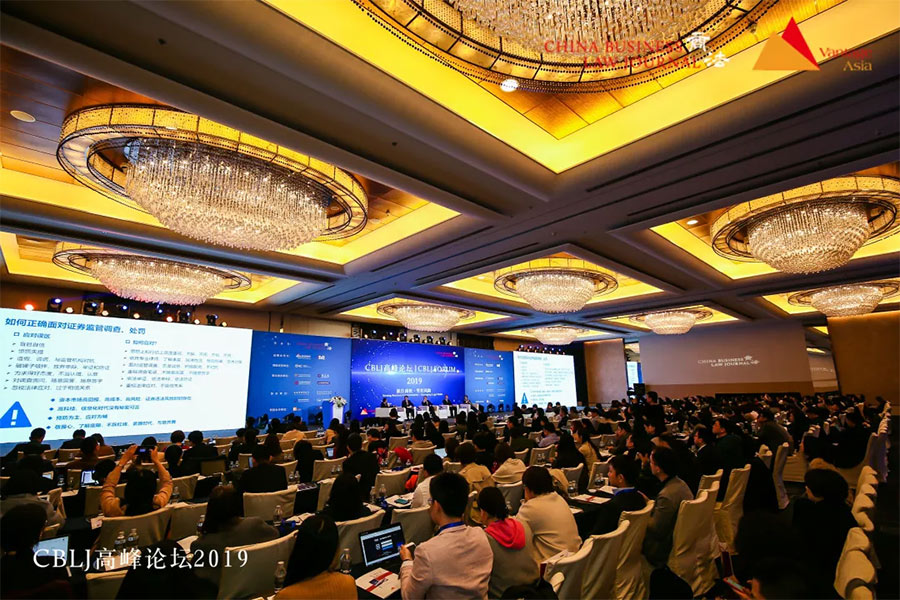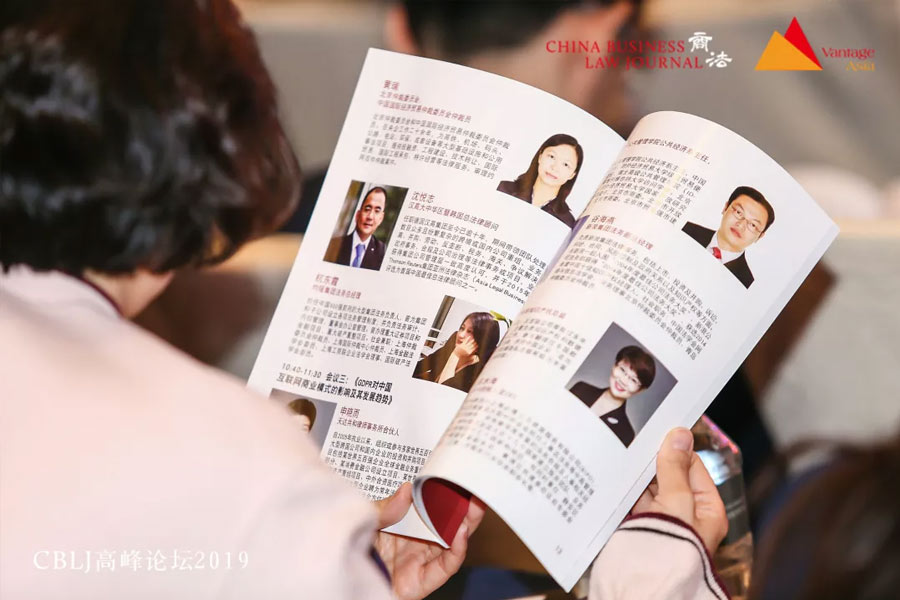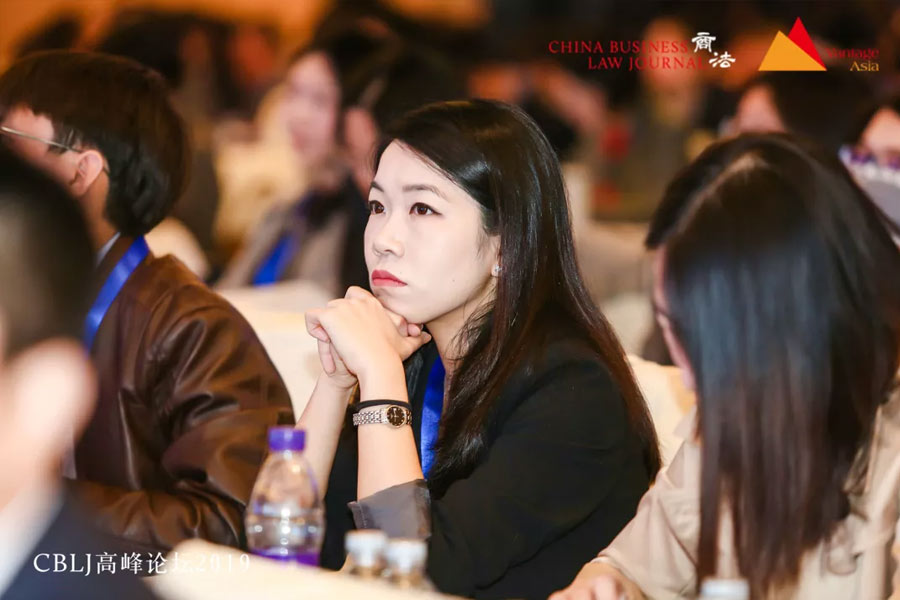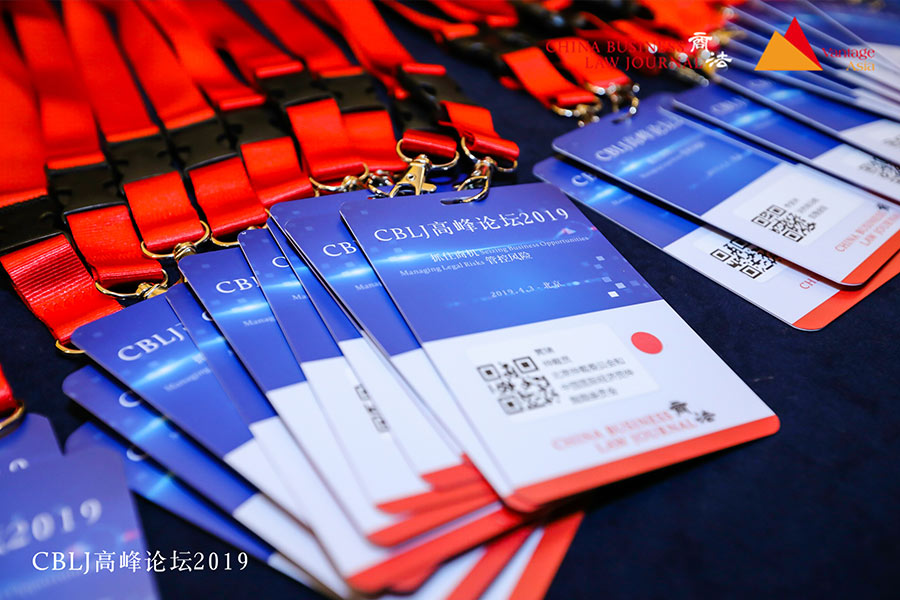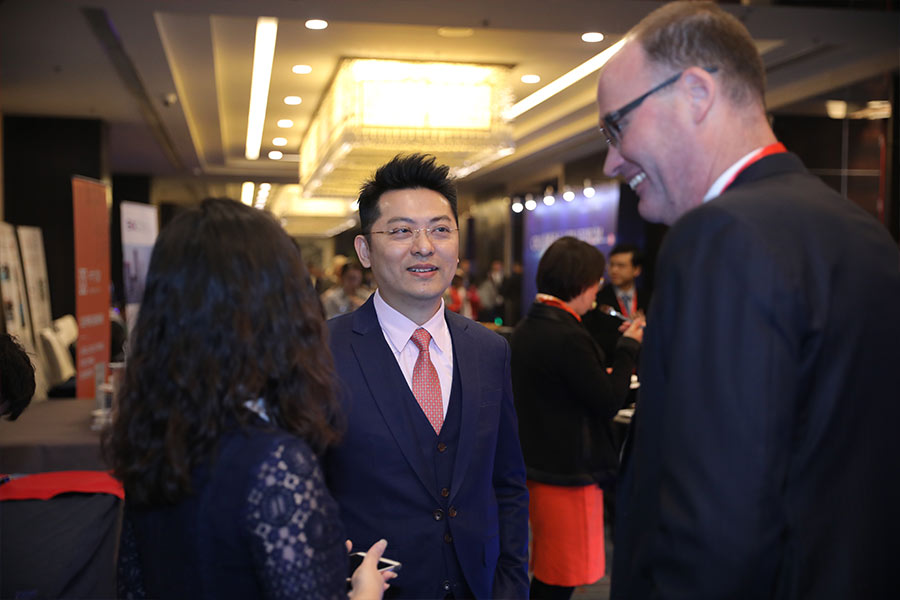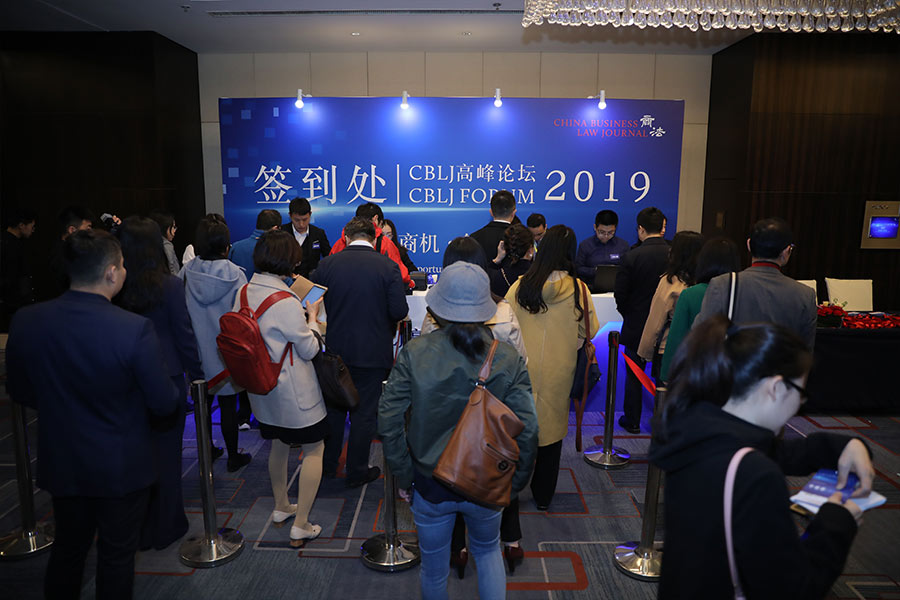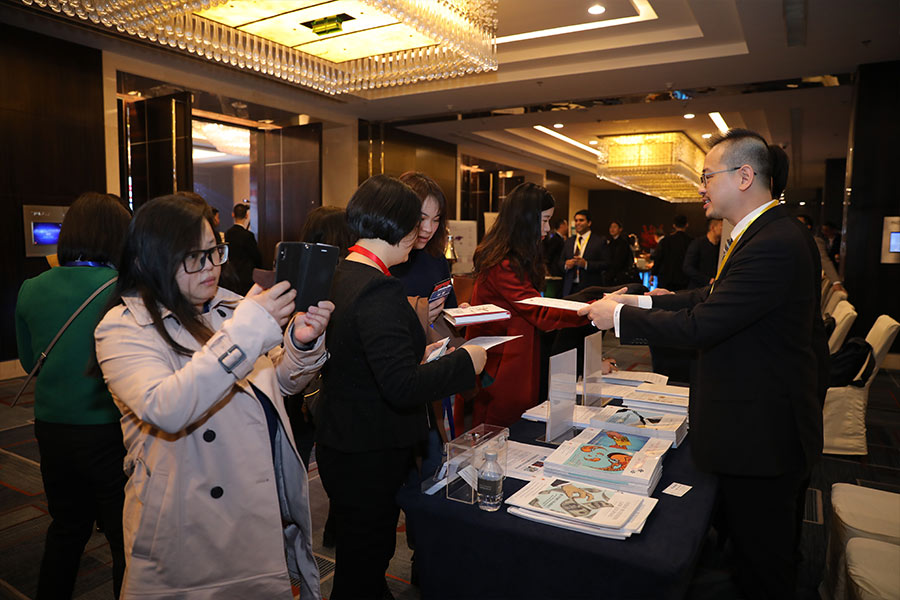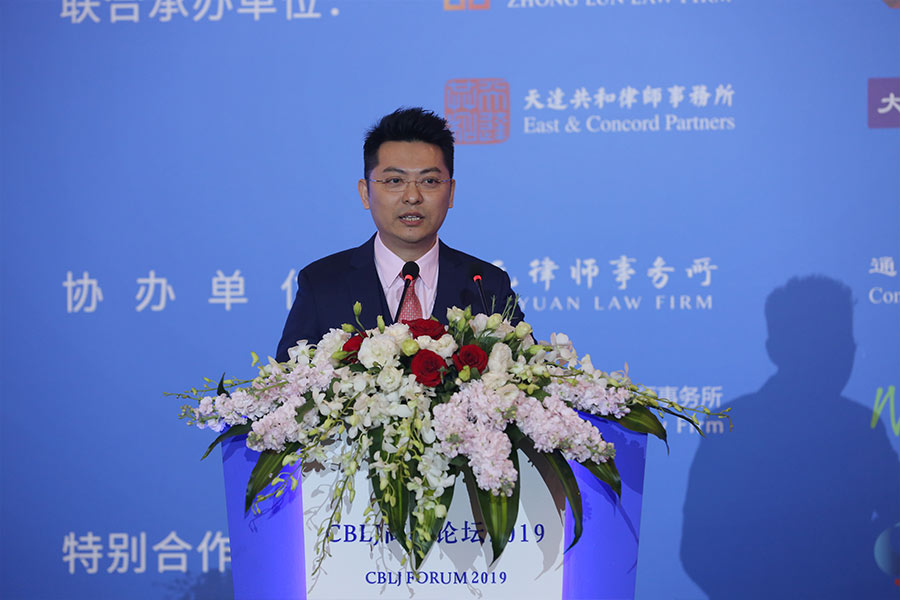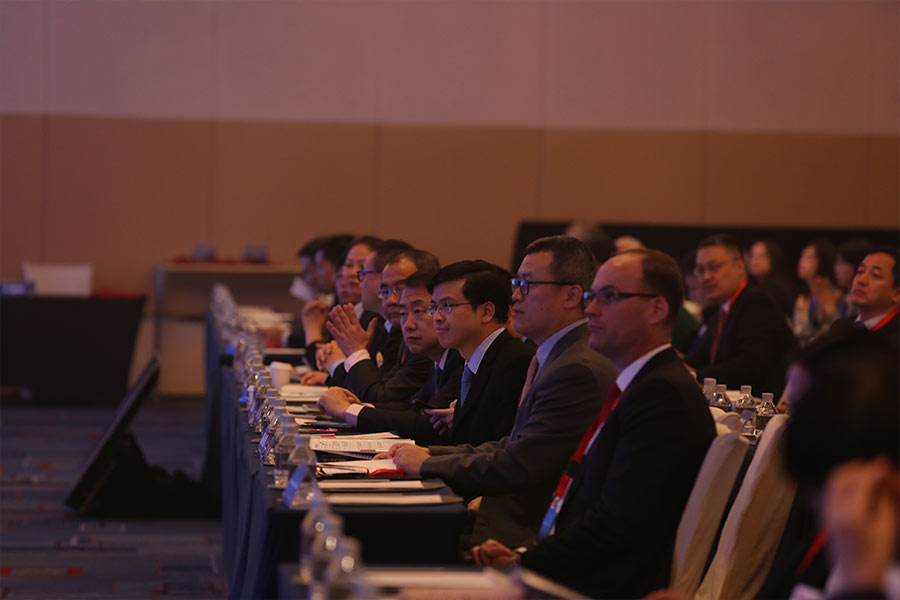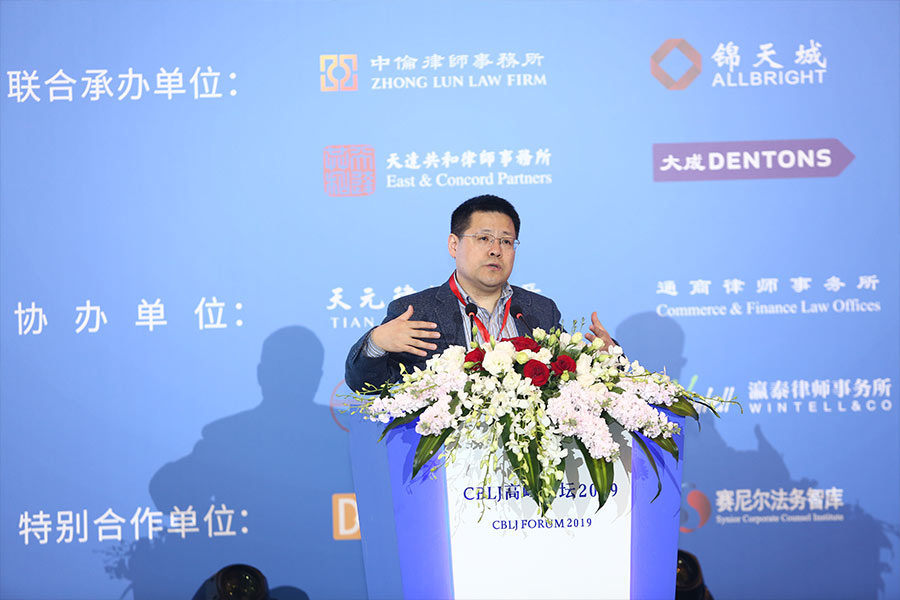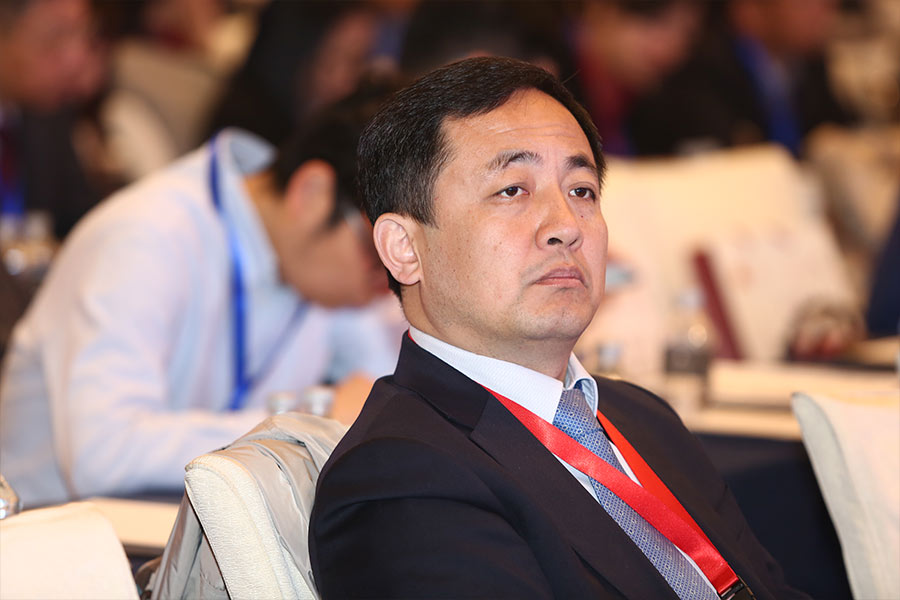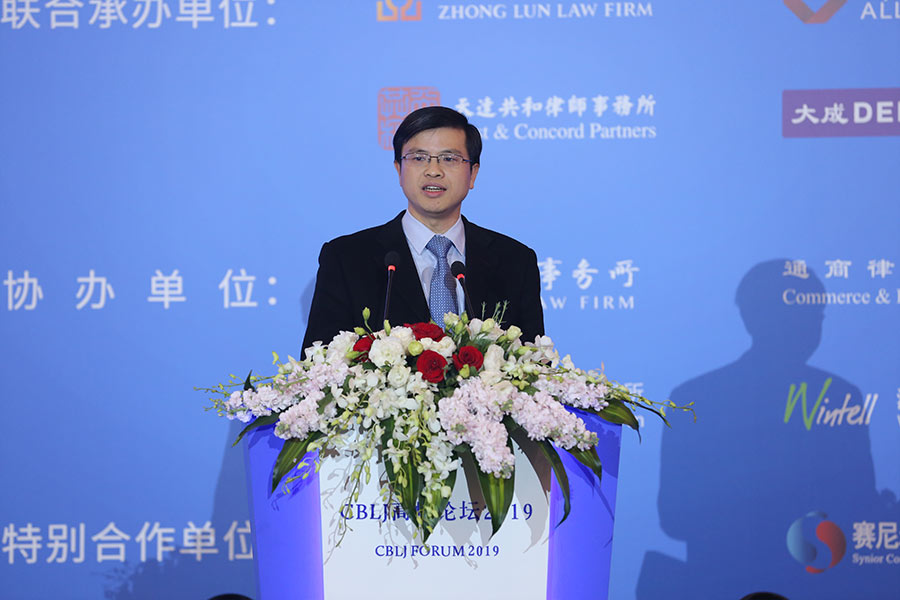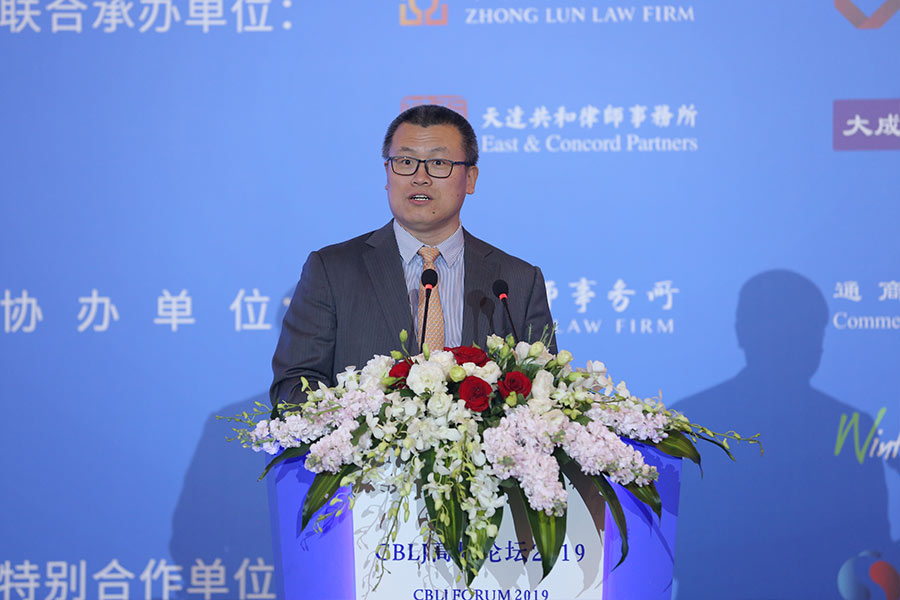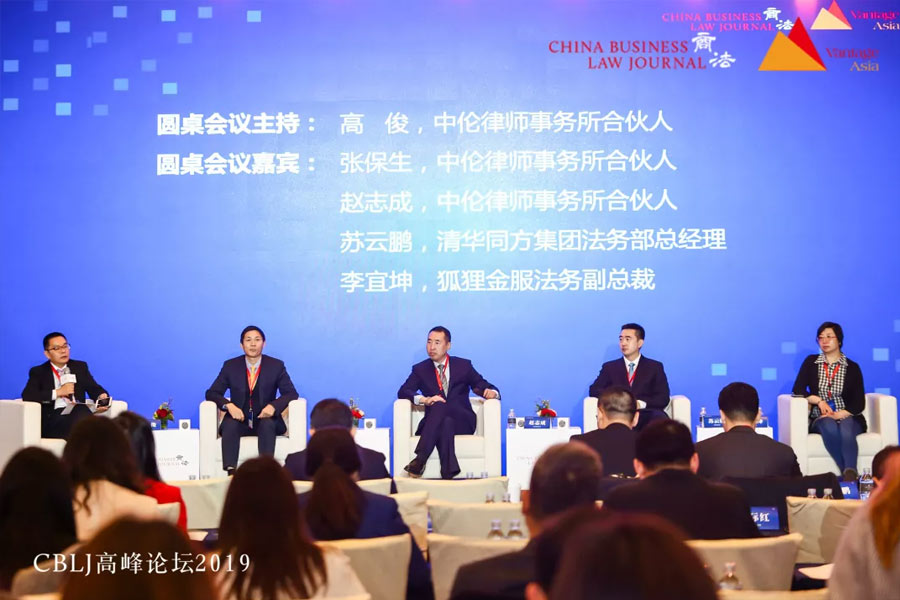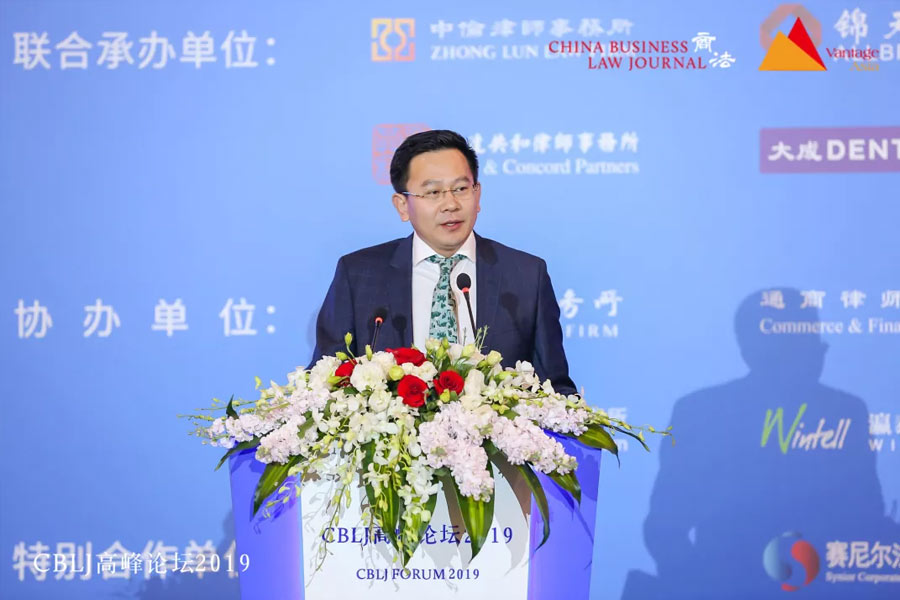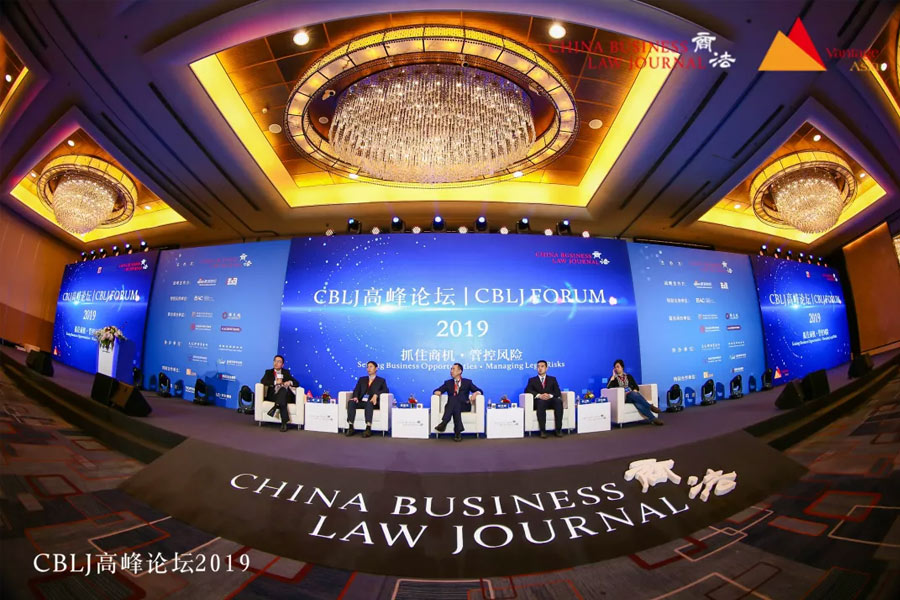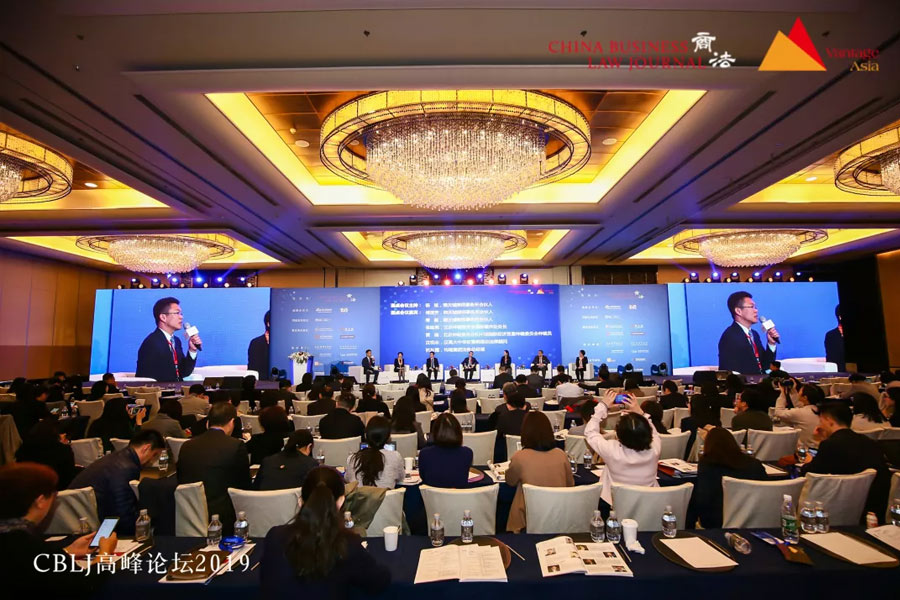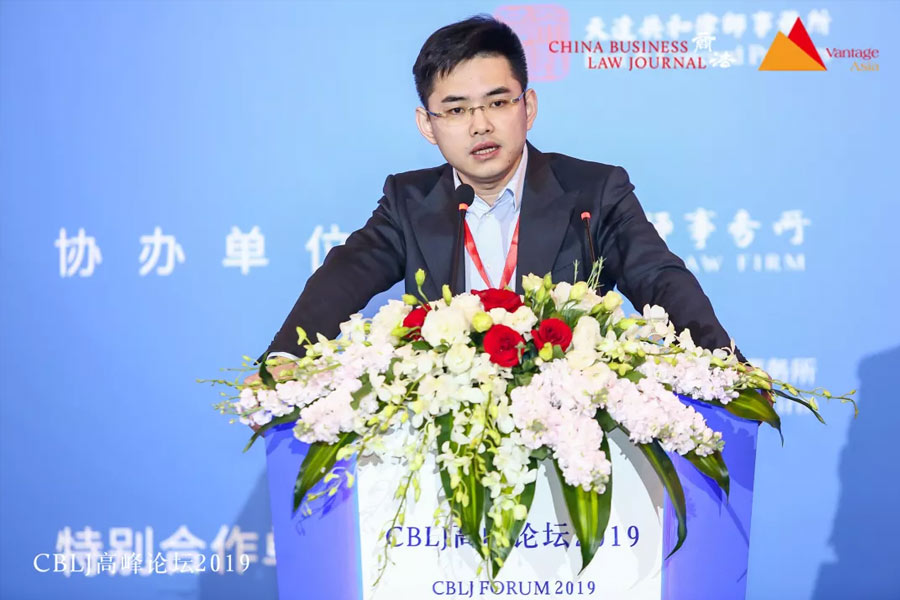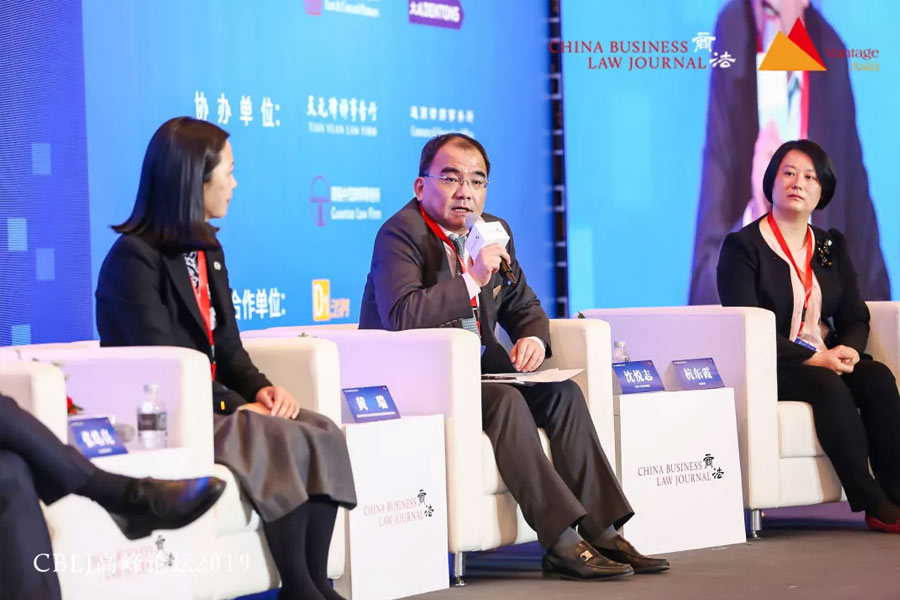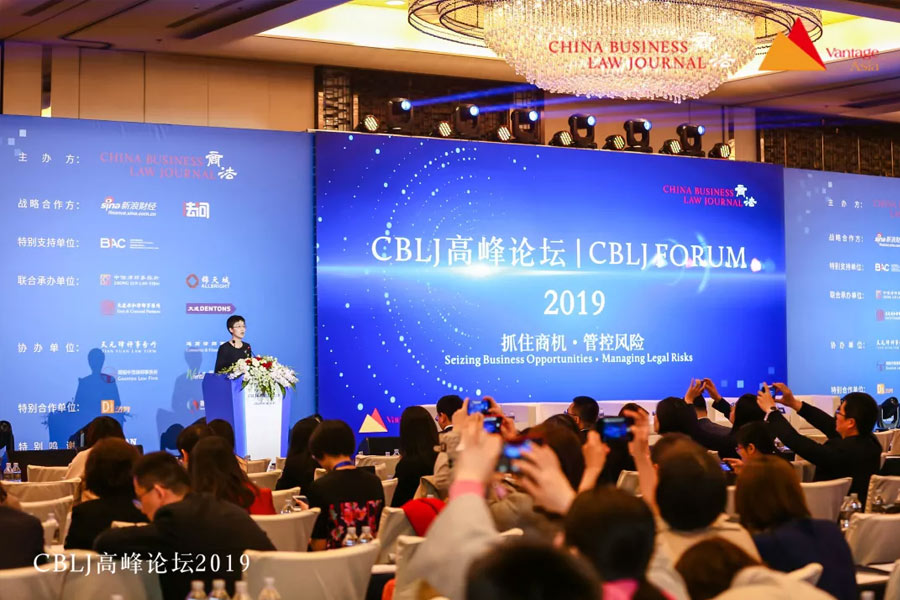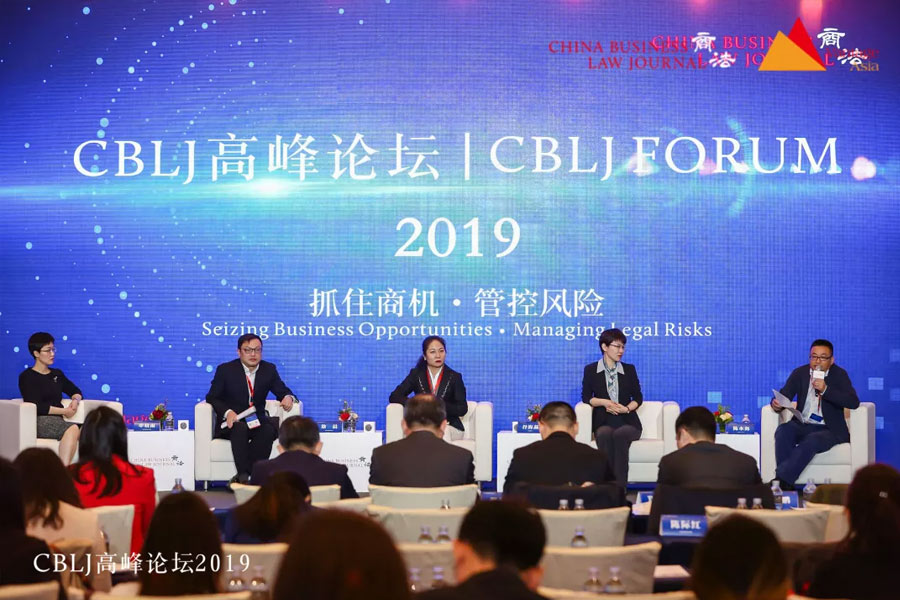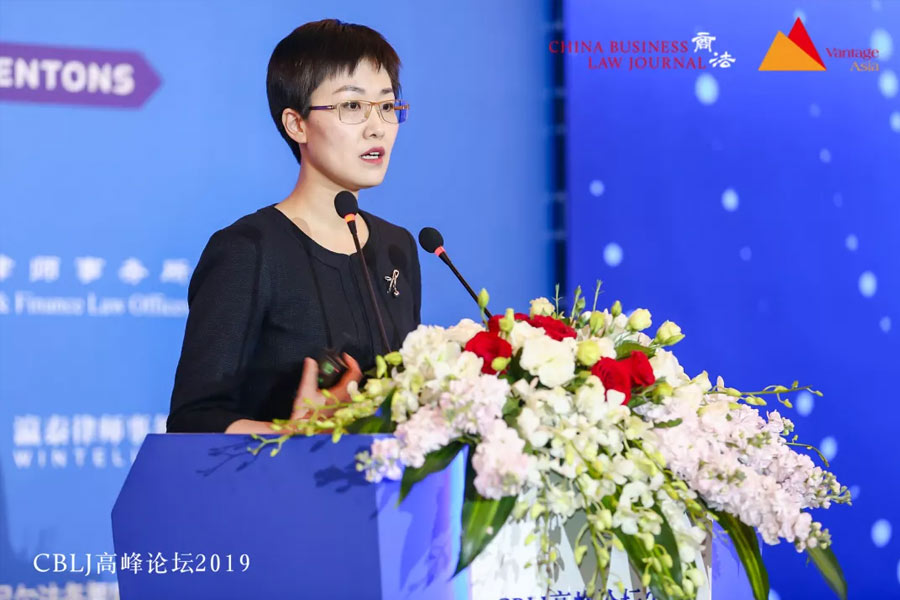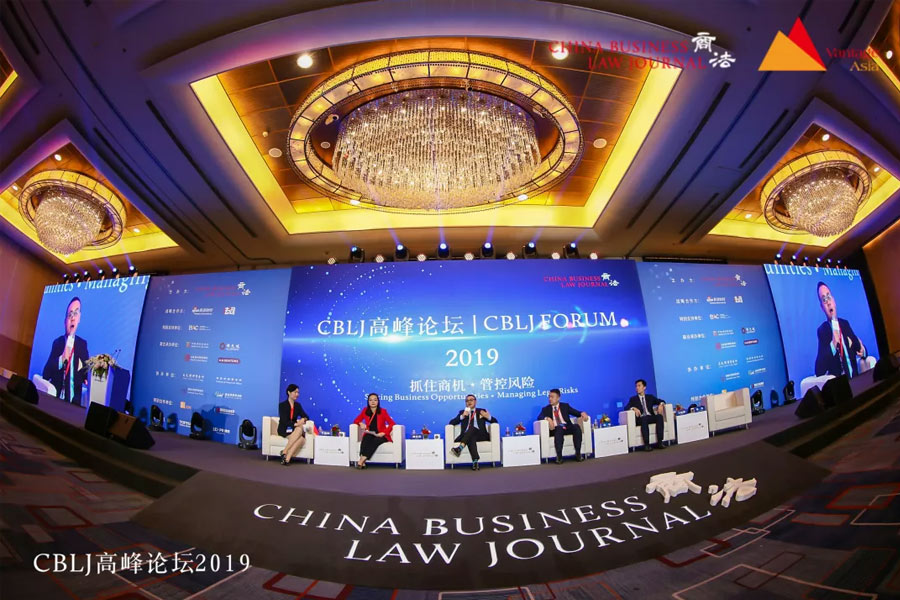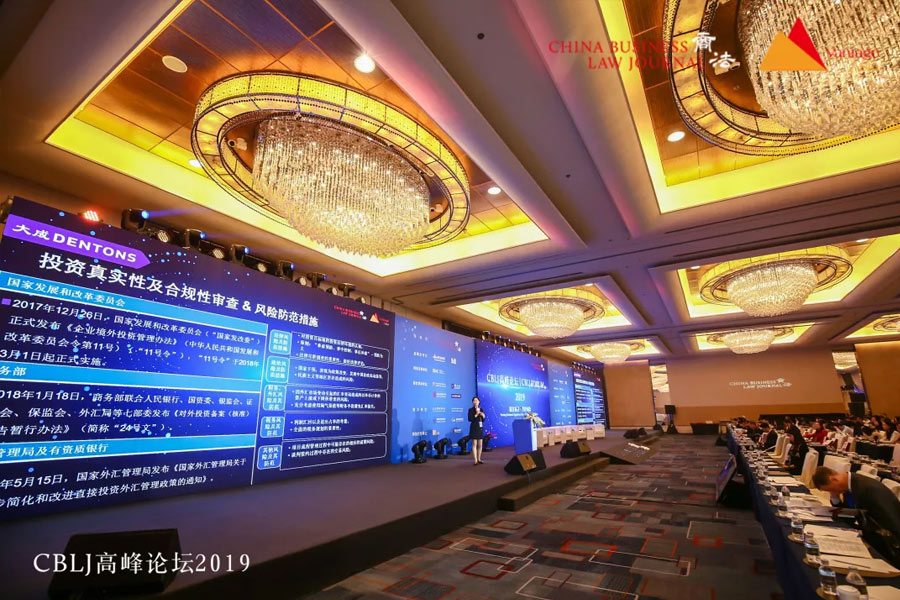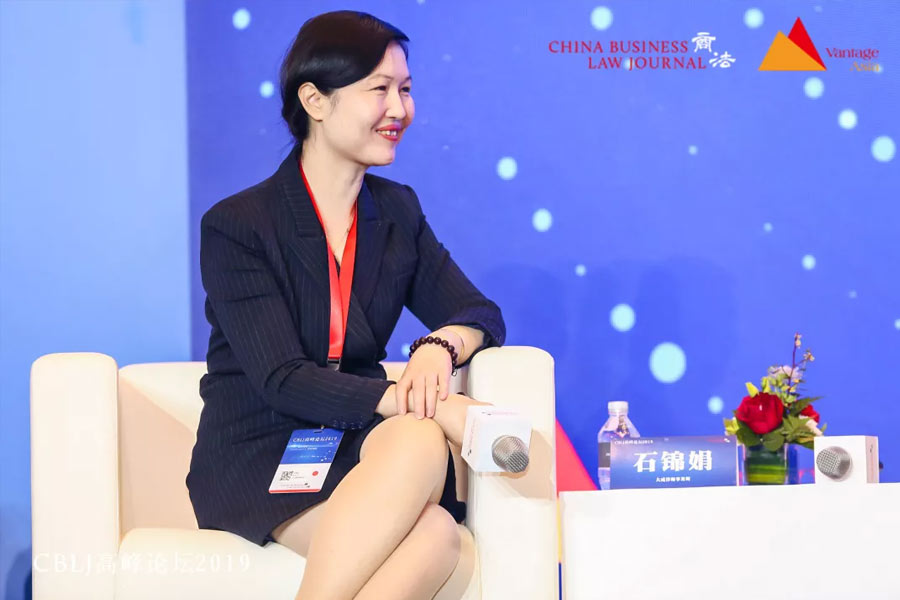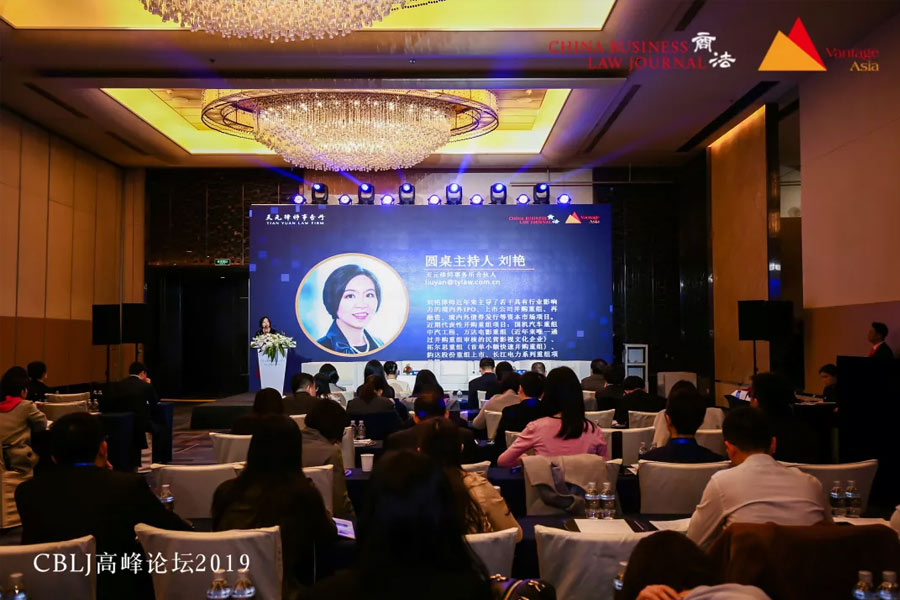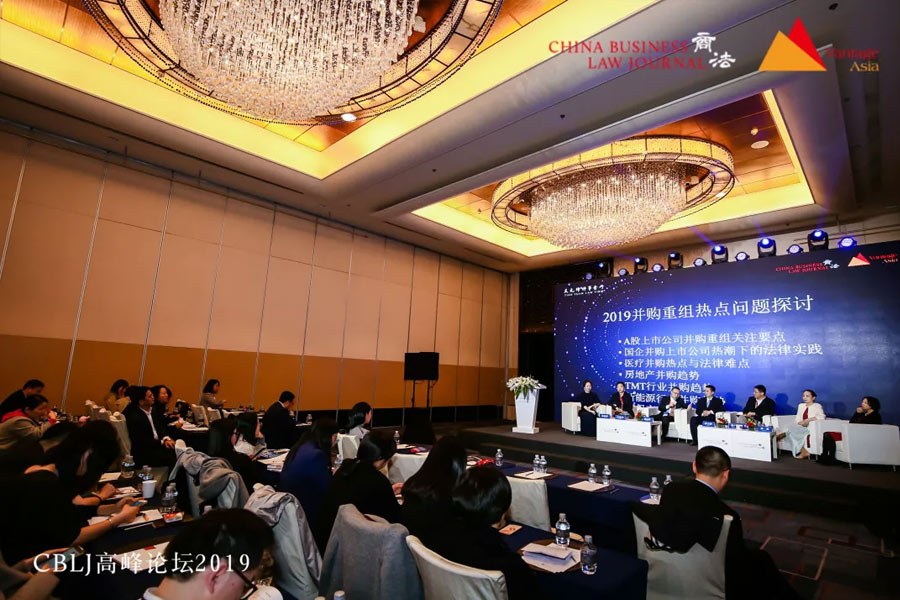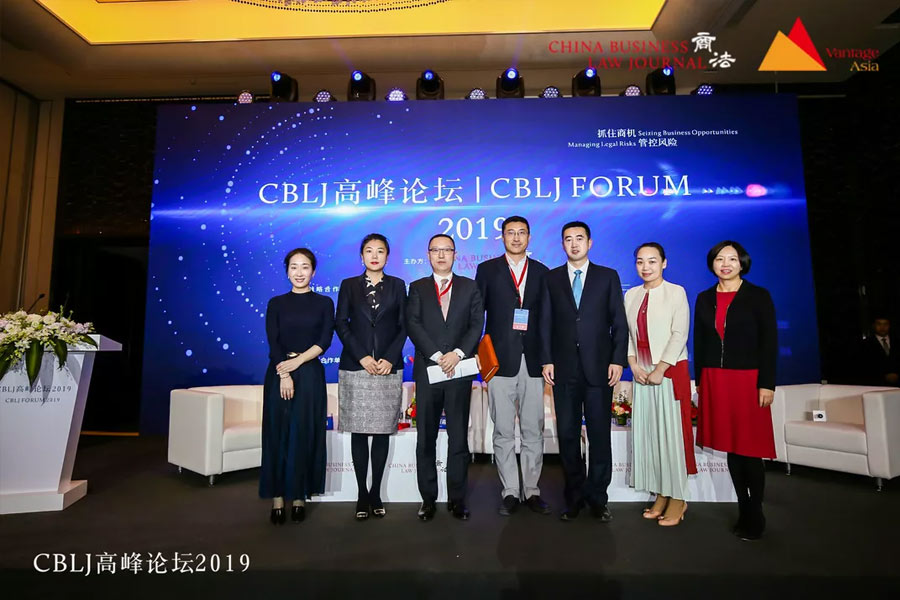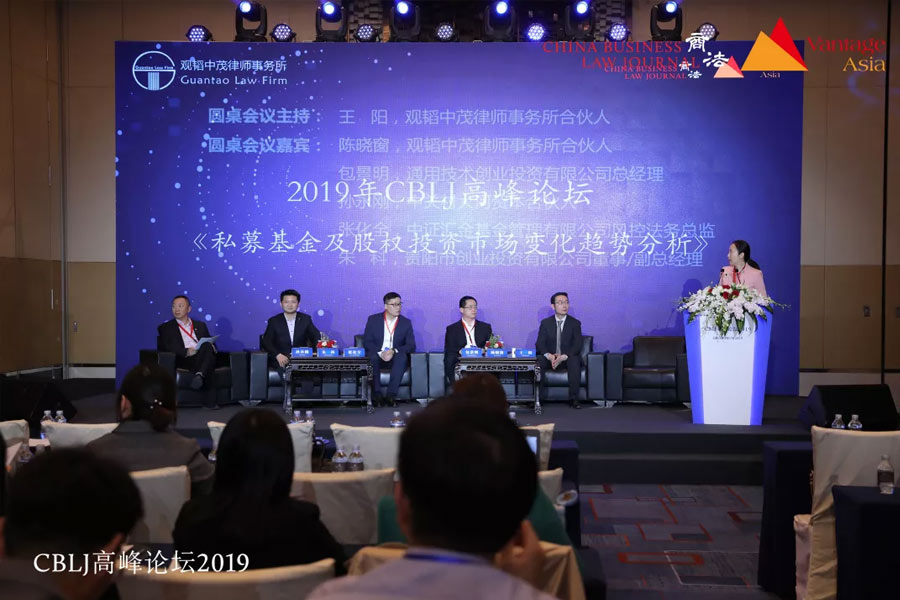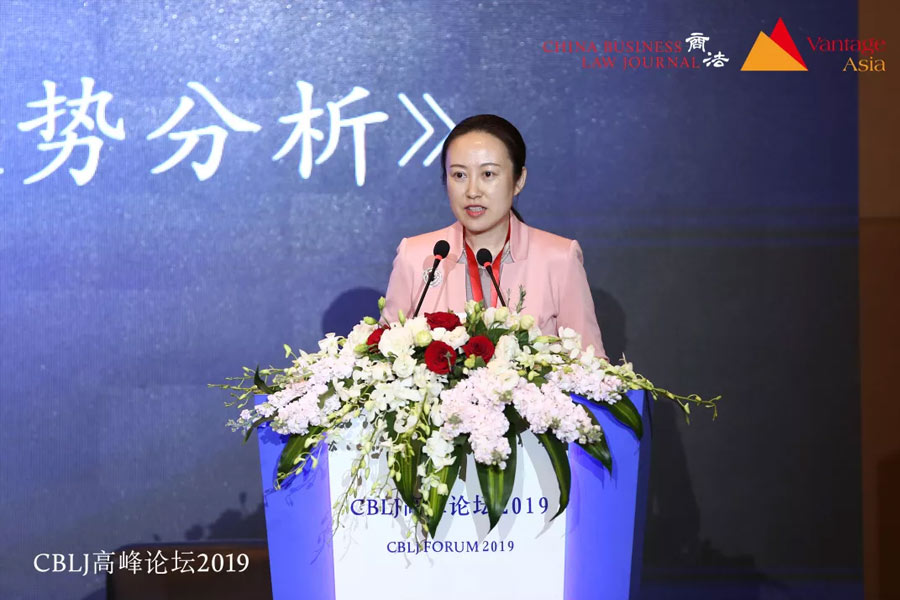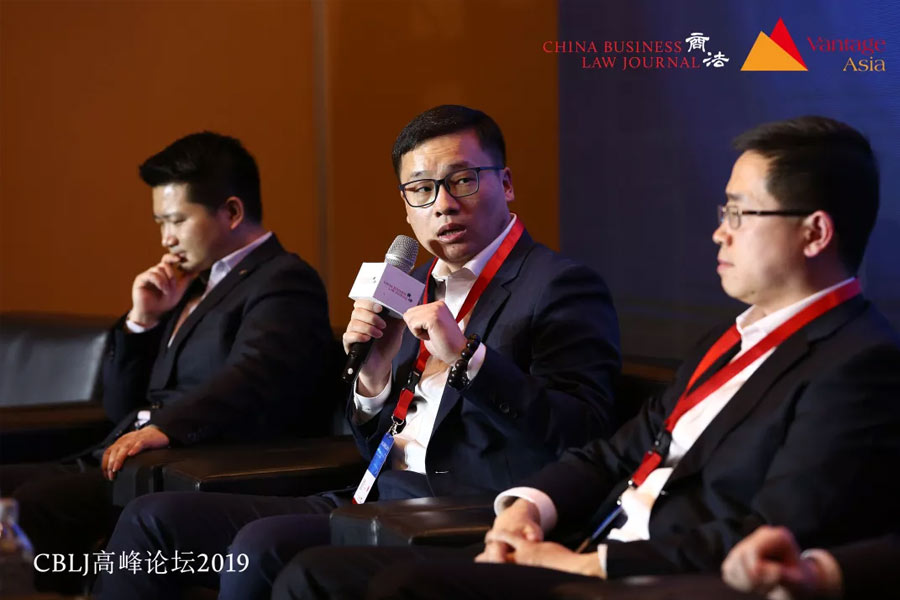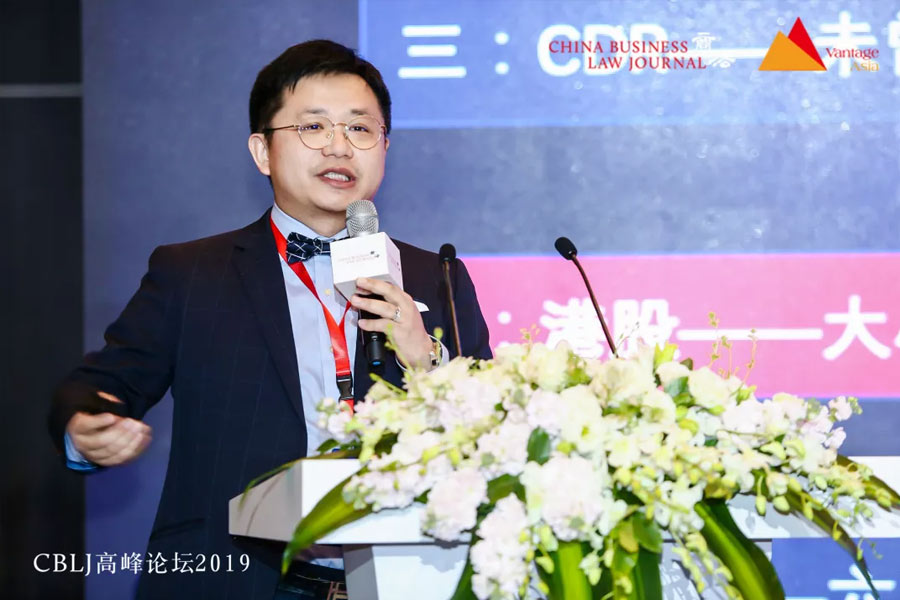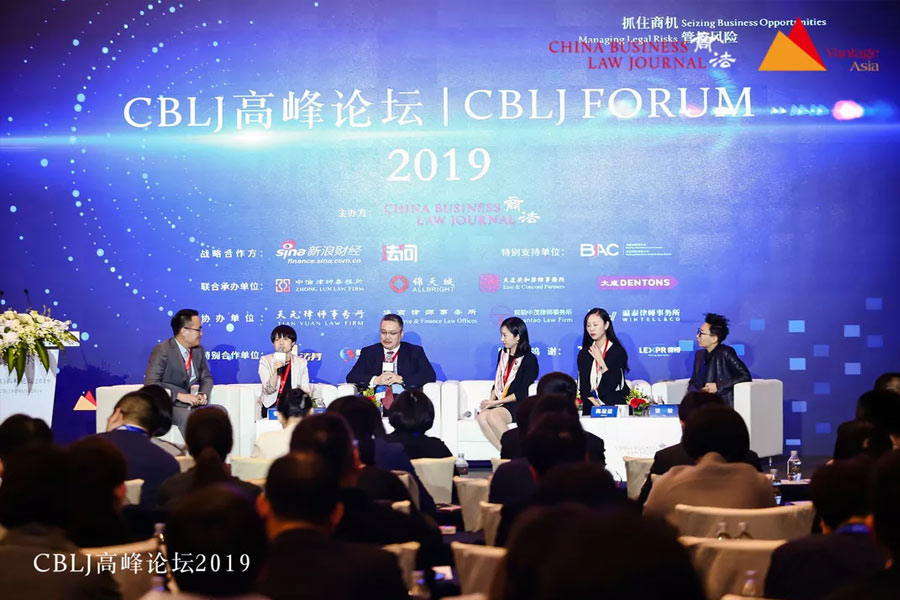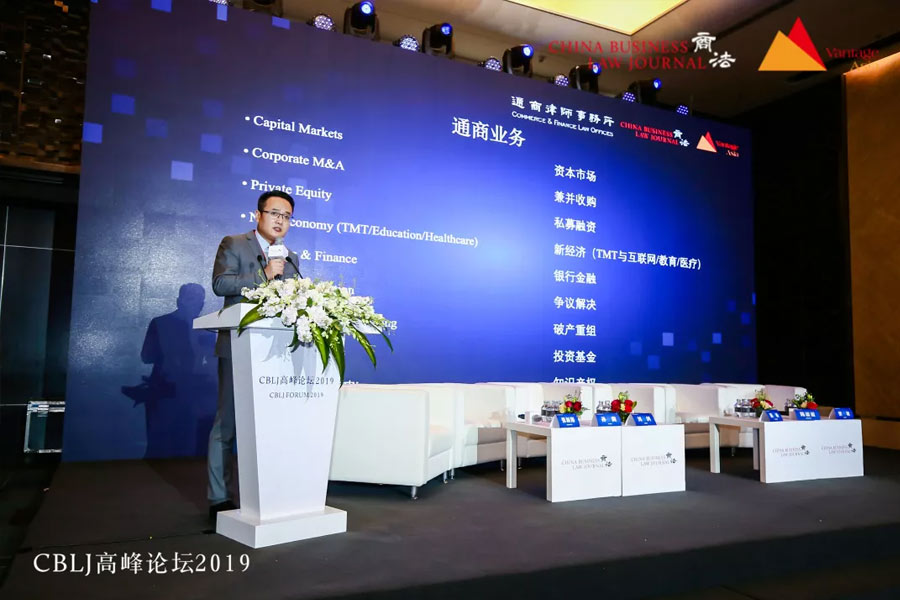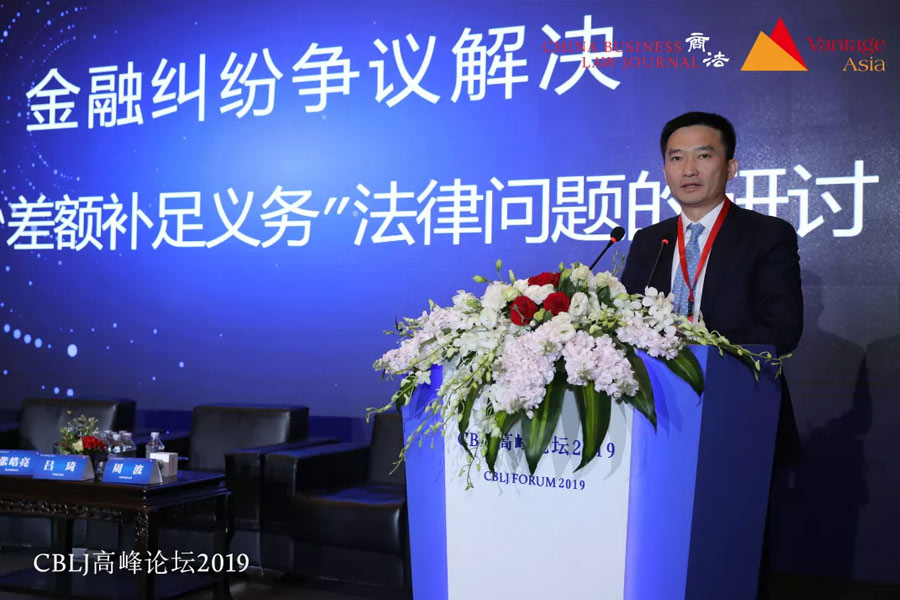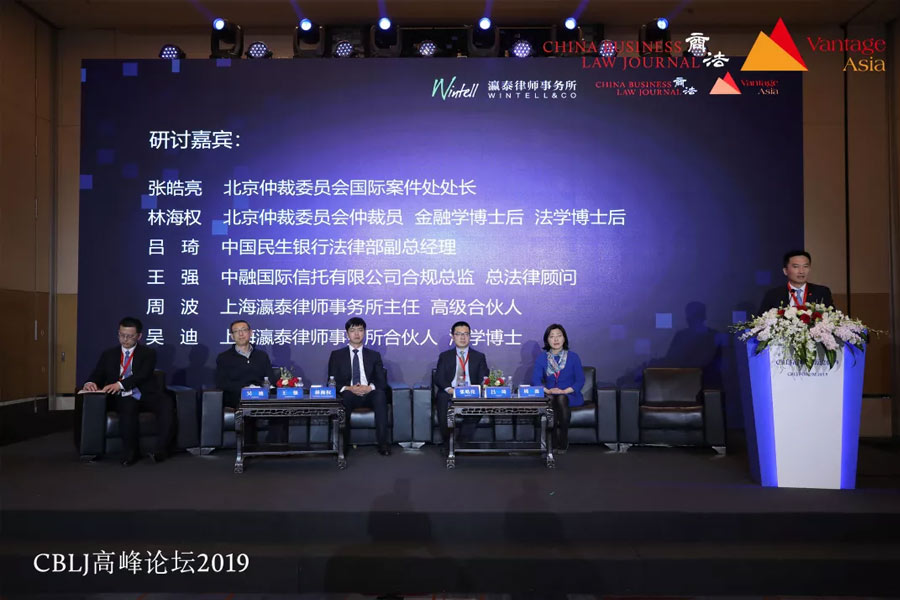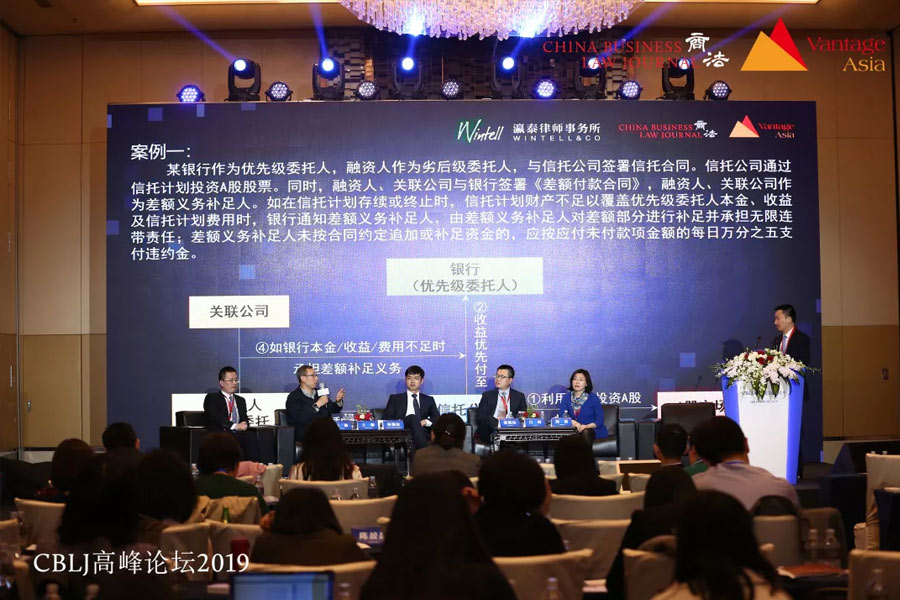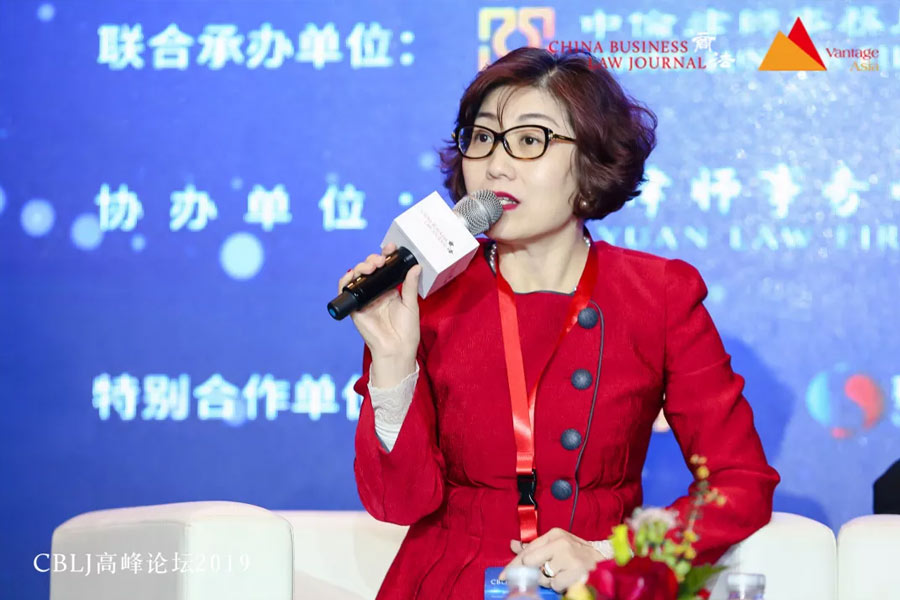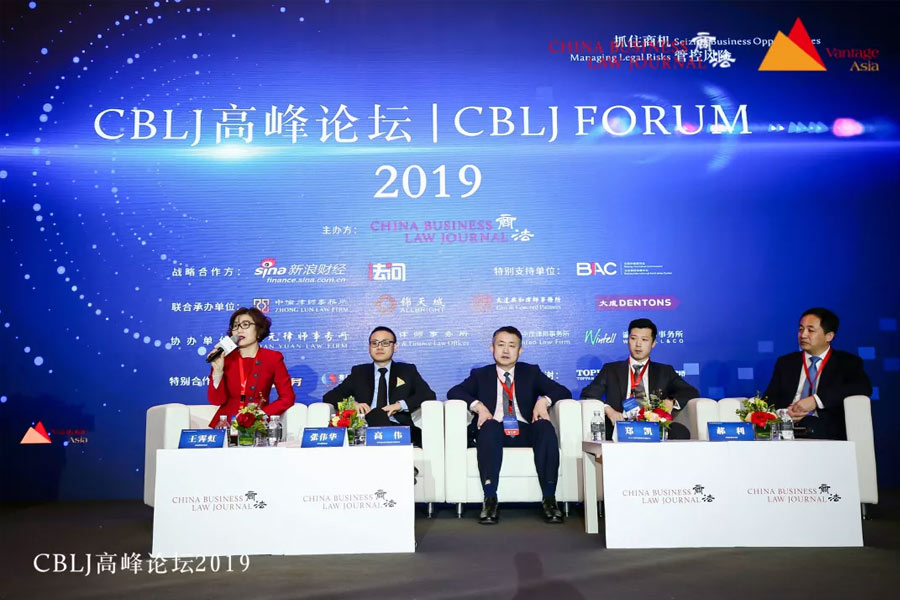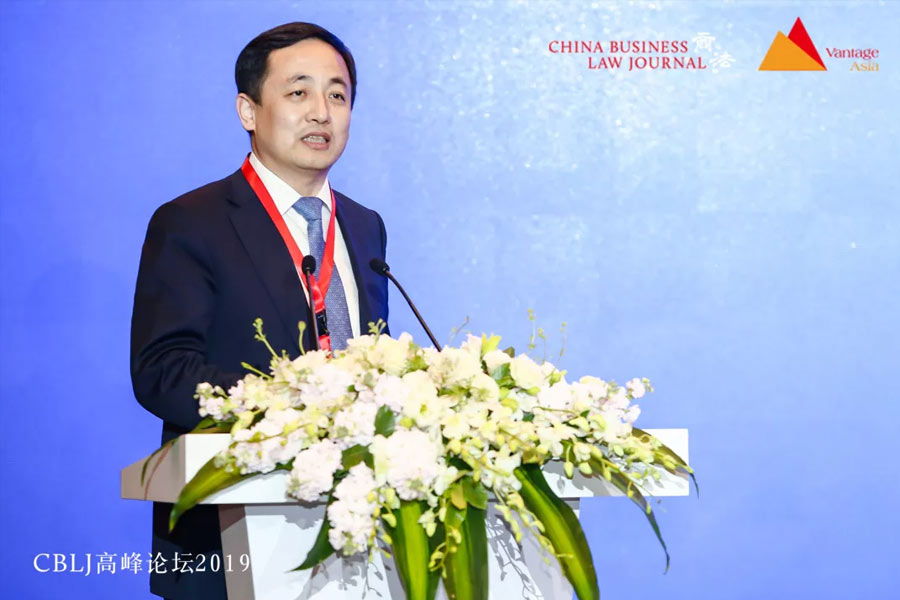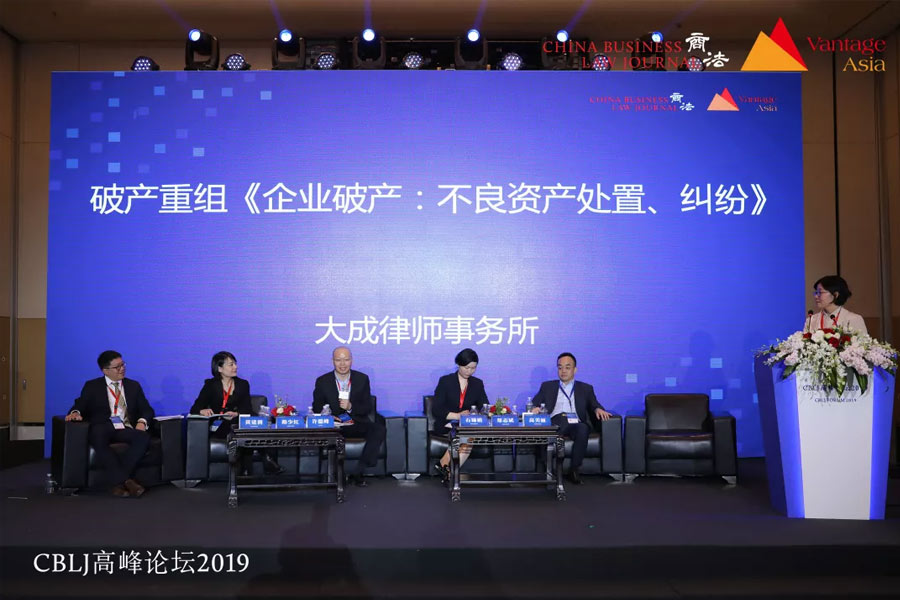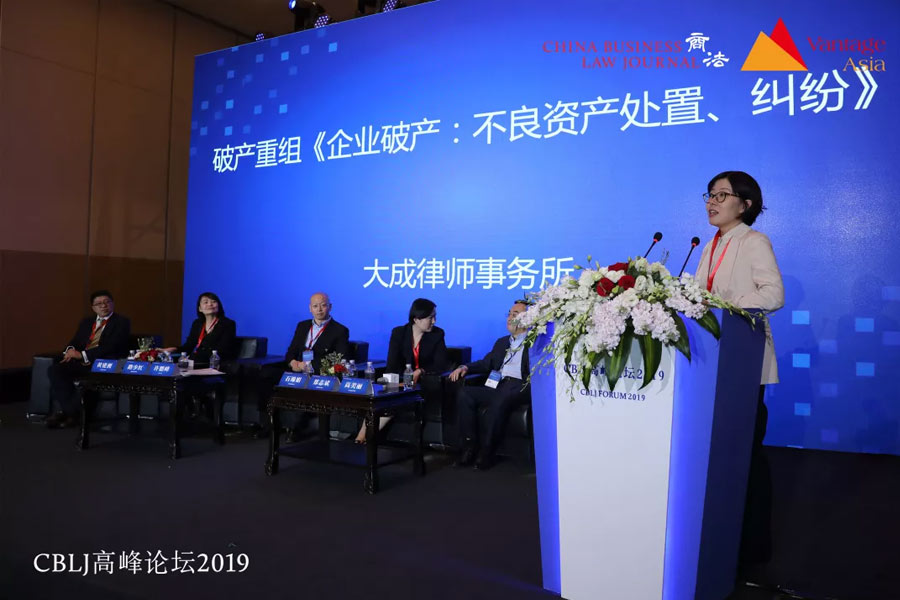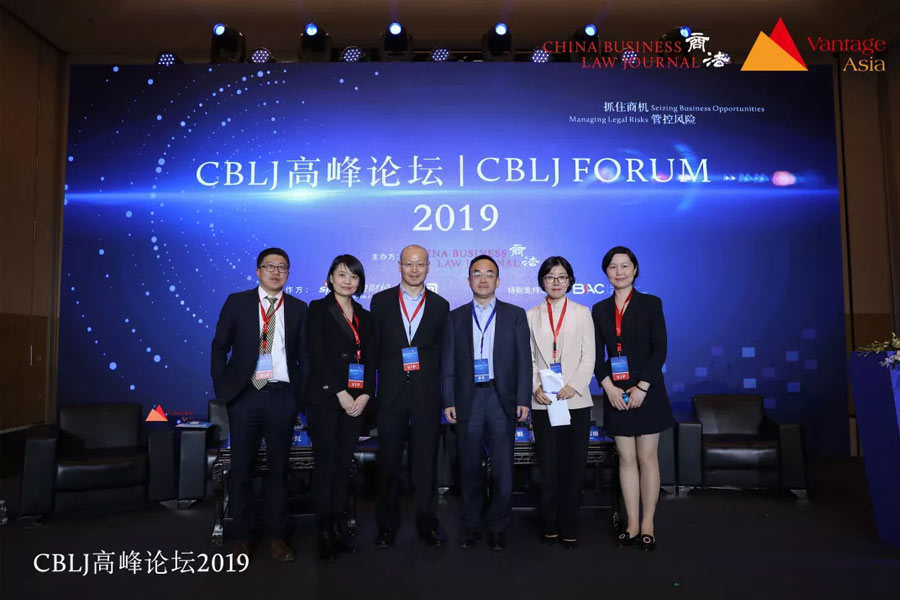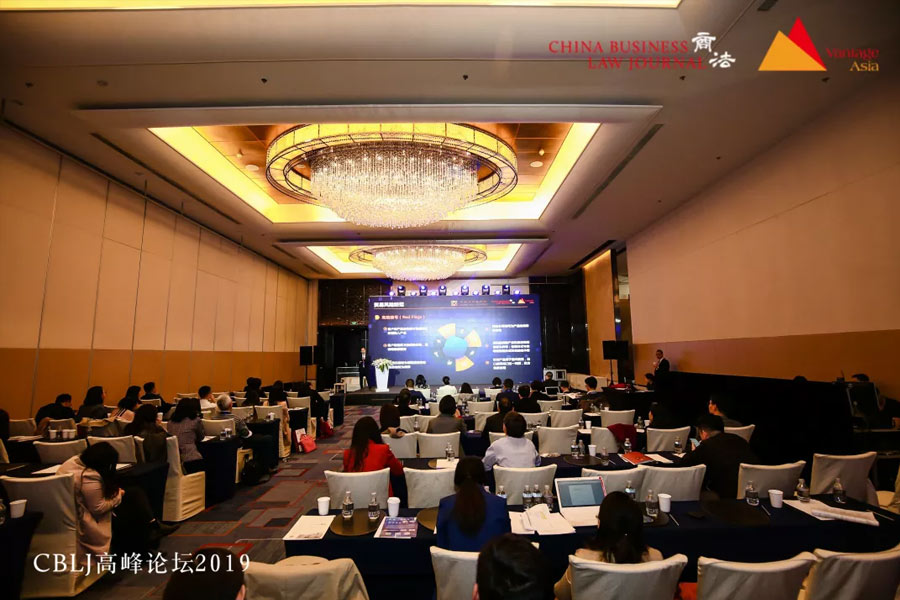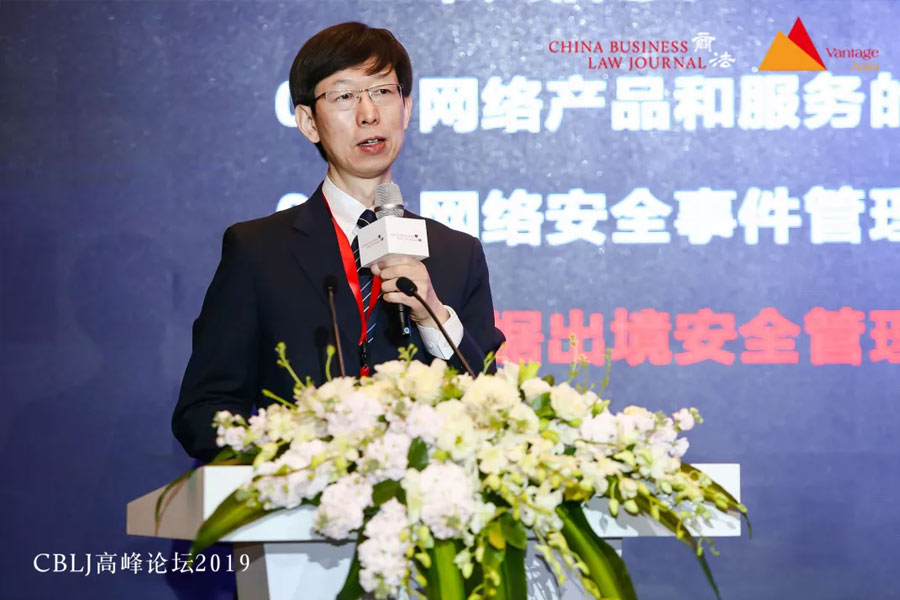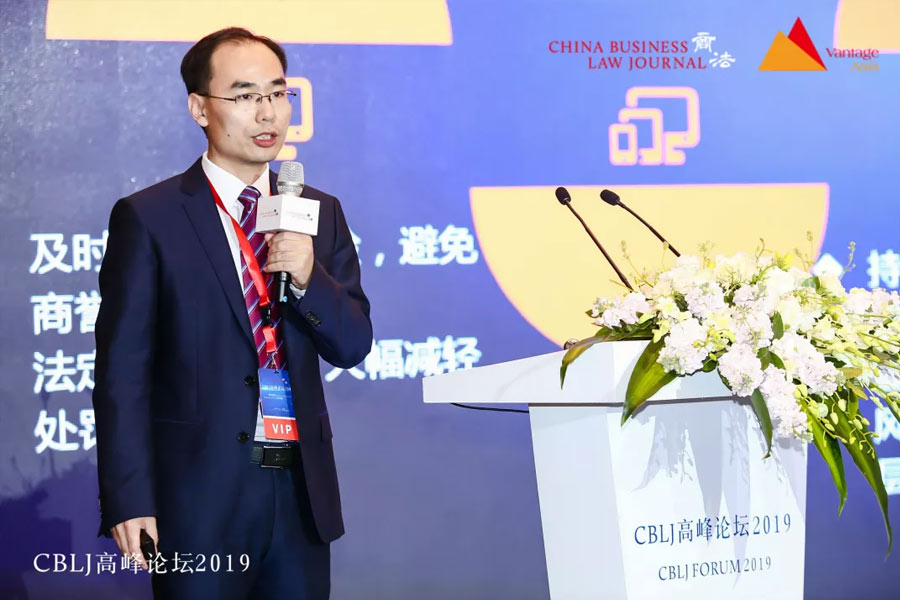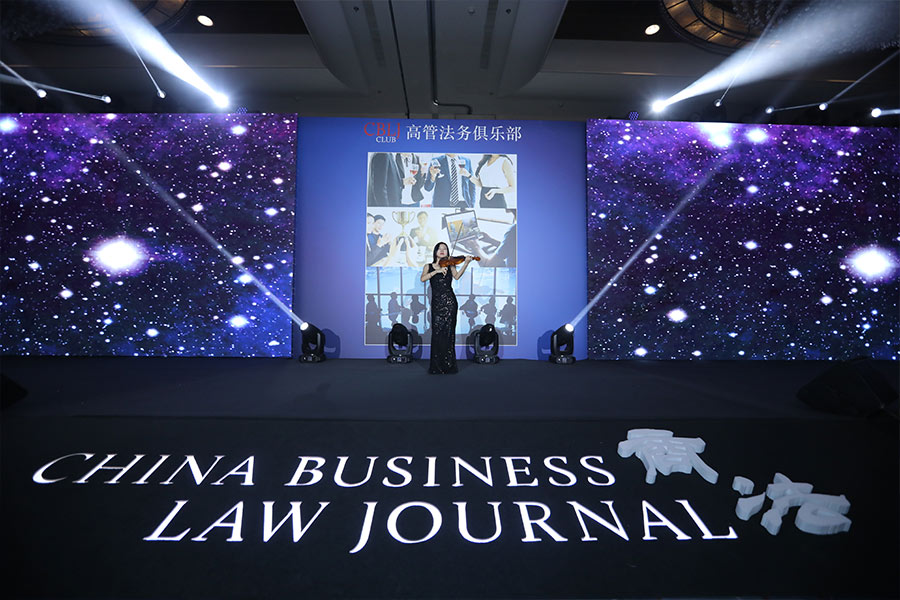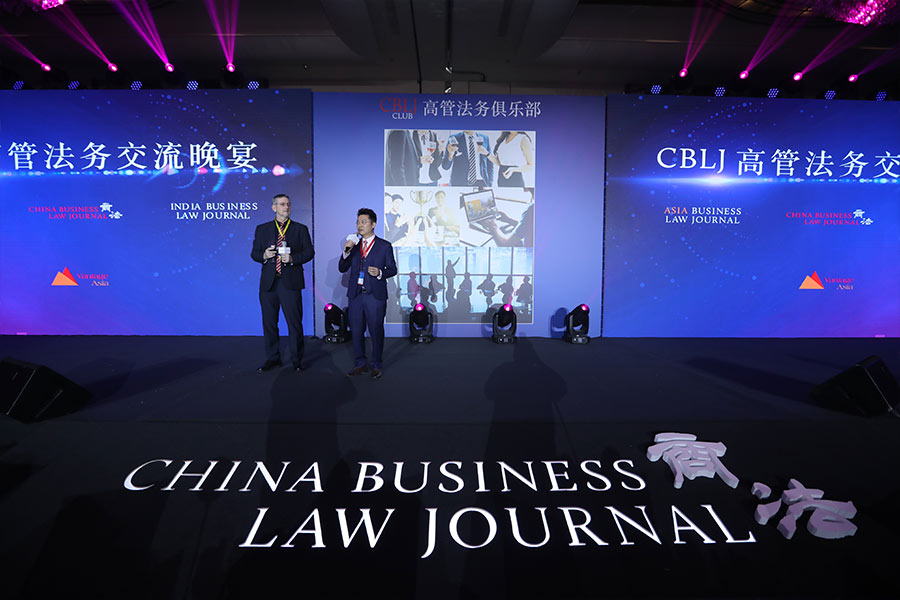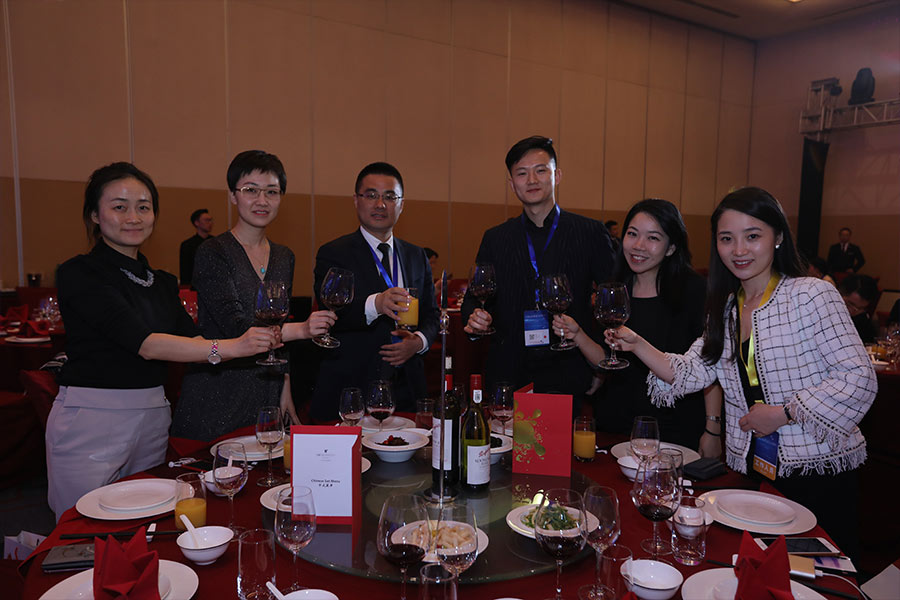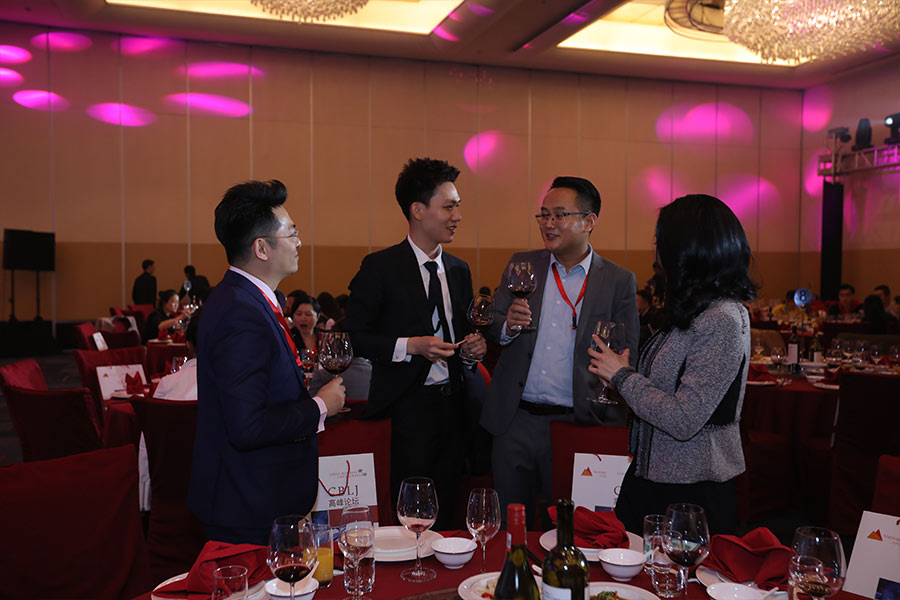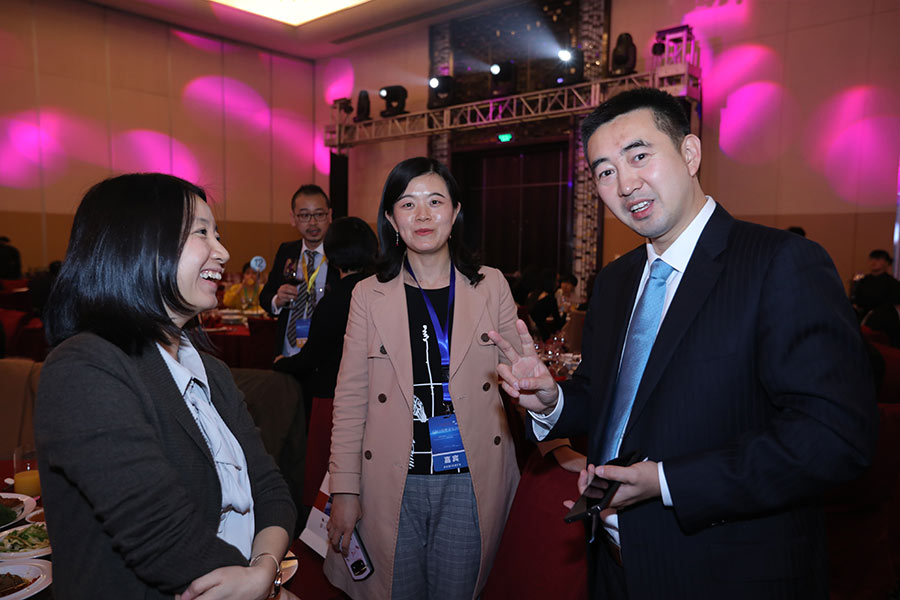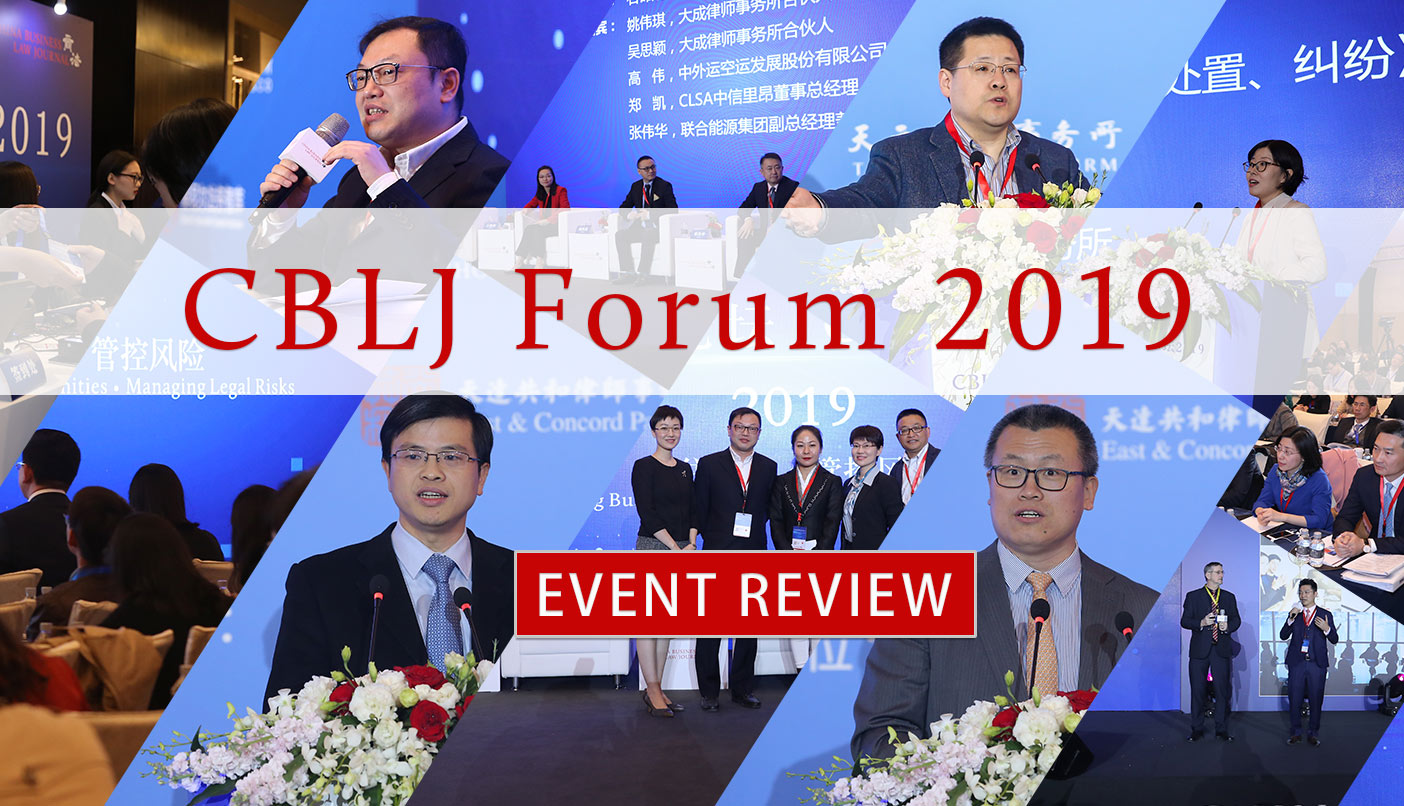
About 500 corporate executives, legal counsel and business elites attended the first CBLJ Forum, hosted by Vantage Asia, the publisher of China Business Law Journal and Asia Business Law Journal, at the JW Marriott Hotel in Beijing on 3 April.The forum, which carried the theme “Seizing business opportunities and managing legal risks”, also attracted about 100,000 people who watched the event live on a special SINA webpage.
Platinum sponsors
Gold sponsors
Special partner
Supporting partners
More information is being updated …
Opening speeches
Kelley Fong:Publisher, China Business Law Journal
Chen Fuyong:Deputy Secretary-General, Beijing Arbitration Commission/Beijing International Arbitration Center
Deng Qingxu:Senior Vice President, SINA.com
Keynote Speech – In-depth globalization and compliance issues
Qin Shuo:Founder of the Commercial Civilization Research Center of China and “Chin@ Moments”, a new media which covers economics, finance and business. He was previously vice-president of Shanghai Media Group, and founder and chief editor of Yicai
More information is being updated …
(Chen Fuyong:Deputy Secretary-General, Beijing Arbitration Commission/Beijing International Arbitration Center)
(Chen Yingying: Legal director and securities affairs representative of Meten International Education Group)
(Deng Qingxu:Senior Vice President, SINA.com)
(Dong Gang:Chief Compliance Officer, Morgan Stanley China)
(Helen Gu:General Counsel, Sina)
(Hope Hang: General counsel at JuneYao Group)
(Victor Shen:Chief Legal Counsel, Henkel Greater China and Korea )
(Peter Su:General Counsel, Tsinghua Tongfang)
(Sun Bin:Chief Legal Officer, Xiaomi)
(Eric Xie:General manager of the Legal Department at Golden Concord Holdings )
(Anna Xue:IP director at the Legal Department, Perfect World)
(Leslie Zhang:Deputy general manager and general counsel of the legal department, United Energy Group)
(Ian Robertson:Senior director, Association of Corporate Counsel (ACC), East Asia)
(Eric Xu: Senior Managing Director, CLADE)
More information is being updated …
CORPORATE COMPLIANCE IN PROGRESS

DURING THE ROUNDTABLE sessions of the CBLJ Forum 2019, Zhong Lun Law Firm moderated a discussion with in-house legal counsel focusing on “Corporate compliance management: executive’s responsibility, securities compliance, criminal law compliance, anti-corruption in private enterprises, and how to cope with government supervision”.
Liu Xiangwen, an equity partner at the firm, gave a keynote speech in this session. Gary Gao, Zhang Baosheng, Zhao Zhicheng, all equity partners with the firm, together with Li Yikun, vice president of Fox Financial Technology, and Peter Su, general counsel at Tsinghua Tongfang, participated in the panel discussion.
According to Liu, China has stepped up its efforts in law enforcement, anti-corruption and supervision in the past five years. He also referred to the international environment in his speech and pointed out that Chinese enterprises would, in the process of going global, be compelled by international rules to attach greater importance to compliance, rather than blindly seeking commercial interests against the background of Sino-US trade conflicts and the Belt and Road Initiative.
Gao held that Chinese enterprises would go through considerable hardships in the course of going global if they thought they could pollute the environment and break the rules. In his opinion, the root cause of Chinese enterprises not being respected should be traced back to the rule of law. He said: “The experience that Chinese enterprises learn from their success in the past 40 years could be the root cause of their failure in the future.”
Zhang opined that regulatory bodies have taken a strict stance towards securities supervision and punishment. In recent years, the number of cases involving securities breaches is constantly increasing. Therefore, he suggested that entities being supervised keep a close eye on policy changes in the securities market, receive compliance training through agencies, and find experienced lawyers in this area if they are under scrutiny.
On corporate anti-corruption, Zhao said corruption in private enterprises was so common that most large-scale private enterprises have set up a position known as anti-corruption officer. He suggested that companies could consider experienced talent who have worked at public security bureaus, prosecutor’s offices and courts for this position.
Li Yikun shared her compliance-related experiences with internet financial businesses. She said regulatory bodies were willing to exchange ideas with industry players because it is easier to implement the relevant regulations after proper familiarization with the market. She added that businesses should not only think about how to comply with existing rules and regulations, but also participate in the formulation of industry standards, by which “we can make compliance become a competitive edge of Chinese enterprises”.
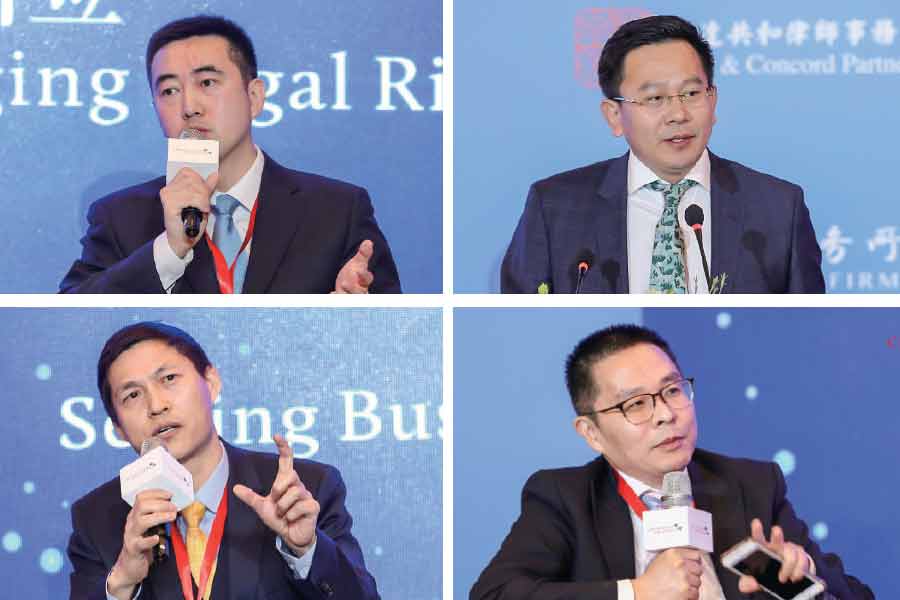
More information is being updated …
SEIZING OPPORTUNITIES IN INVESTMENT, FINANCING

DURING THE ROUNDTABLE session of the CBLJ Forum 2019, lawyers from AllBright Law Offices moderated with guests and arbitration experts, discussing the topic “Financial Markets, opportunities in investment and financing, and legal risk prevention”.
Attending the session were senior partners Andy Zhao, Cathy Fu, Carl Miao, partner Jordan Yang, at AllBright Law Offices, Zhang Haoliang, director of the Beijing Arbitration Commission (BAC) Business Development / International Case Division, Huang Rui, arbitrator at the BAC and the China International Economic and Trade Arbitration Commission (CIETAC), Victor Shen, chief legal counsel at Henkel Greater China and Korea, and Hope Hang, general counsel at JuneYao Group.
Zhao said in his keynote speech that many risks in the market have resulted from an imbalance between the business-related division and the legal affairs division within a company. He said that clients not only needed a lawyer to inform them of the risks, but also expected the lawyer to classify the types of risk and find solutions accordingly.
Regarding the “explosion of bombs” in China’s PE funds industry, Fu was of the opinion that the key link in PE funds was the fund managers, and whether the numerous investor rights protection cases can be effectively handled at present involves financial security. When touching upon the establishment of offshore PE funds, Miao explained that the China Securities Regulatory Commission (CSRC) did not have any laws and regulations targeting PE funds that are operating in China but registered overseas, and that supervision overseas was quite soft. However, there are many potential risks in the case of soft supervision. “Sometimes, clients expect to have less supervision, but we lawyers need to make sure that there won’t be any problems,” he said.
Hang shared her view from the perspective of a private enterprise. She said the biggest source of risk in a merger may be the transaction structure and purpose of the merger, because different merger purposes could lead to different issues in terms of compliance. She also pointed out that regulatory bodies put great emphasis on “proactive, complete, timely and effective information disclosure”, and this should be adhered to by the staff responsible for such work in a company.
Shen said the detailed implementation rules of the new Foreign Investment Law, issued in March, and building a friendly business environment for foreign investors were also important elements.
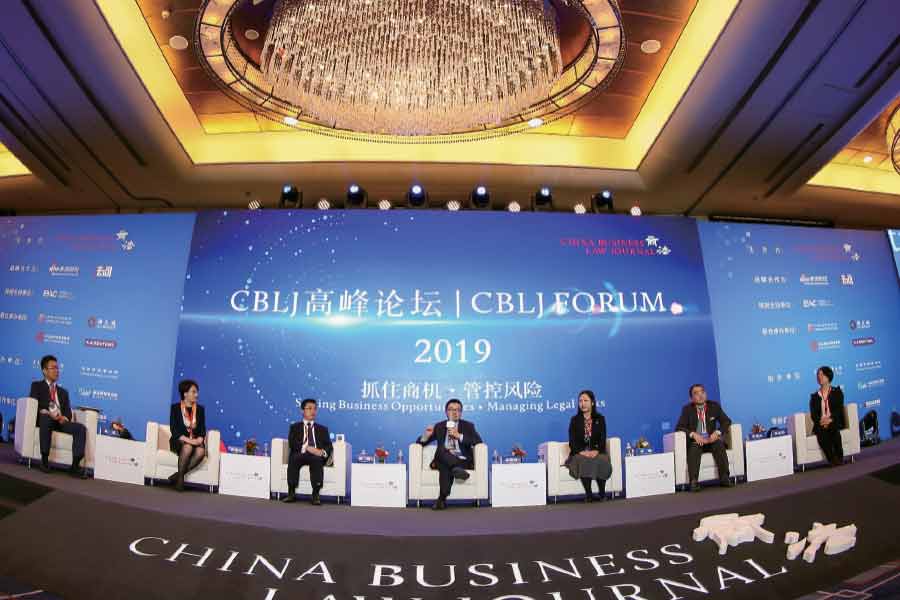
More information is being updated …
EU’S GDPR IN CHINA

DURING THE ROUNDTABLE sessions of CBLJ Forum 2019, Shen Xiao-yu, a partner at East & Concord Partners, moderated a panel discussion on “The impact of GDPR [General Data Protection Regulation] on the business model of China’s internet companies and its future trends”. The other panelists included Anna Xue, IP director at the Legal Department of Perfect World, Helen Gu, general counsel at Sina Corporation, Michael Chen, founder and CEO of BIPO, and Xu Chen, dean of the Department of Public Economics, University of International Business and Economics.
Shen pointed out in her keynote speech that data controllers were obliged by the GDPR to disclose to data subjects in a concise, transparent and comprehensible manner. In her opinion, the laws and regulations relating to the protection of personal information in China are quite scattered. However, she believed that the relevant legislation would be more systematic in the future.
Gu shared her view from the perspective of an in-house counsel, indicating that the high cost to achieve GDPR compliance would make some enterprises cut their overseas business. She pointed out that compliance in the area of advertising and marketing was critical for a news and social media business like Sina. In addition, she said relevant supervision in China differed from that of overseas, as Chinese laws and regulations relating to data protection were scattered in different legal hierarchies, and there were more law enforcement departments in China.
“When I noticed that more and more staff handling overseas business started to consult their colleagues at the legal affairs department, I realized that they actually went there for the GDPR,” said Xue.
Xue held that an economical way to achieve data and privacy compliance in multiple jurisdictions would be to design a set of privacy policies with the GDPR benchmark as the template, and make additions or deletions depending on the requirements in that jurisdiction. In the meantime, she said that corporate counsel should familiarize themselves with the supervision by country of destination, thus securing more room for business-related departments to conduct operations.
Michael Chen is the CEO of BIPO, a company delivering HR services. He shared his experience in processing the information of employees. He said that when they were dealing with the information submitted by eligible interviewees for the application of employment permits, they would send an authorization request to those who had submitted special information, such as religion, and arrange special holidays for them accordingly.
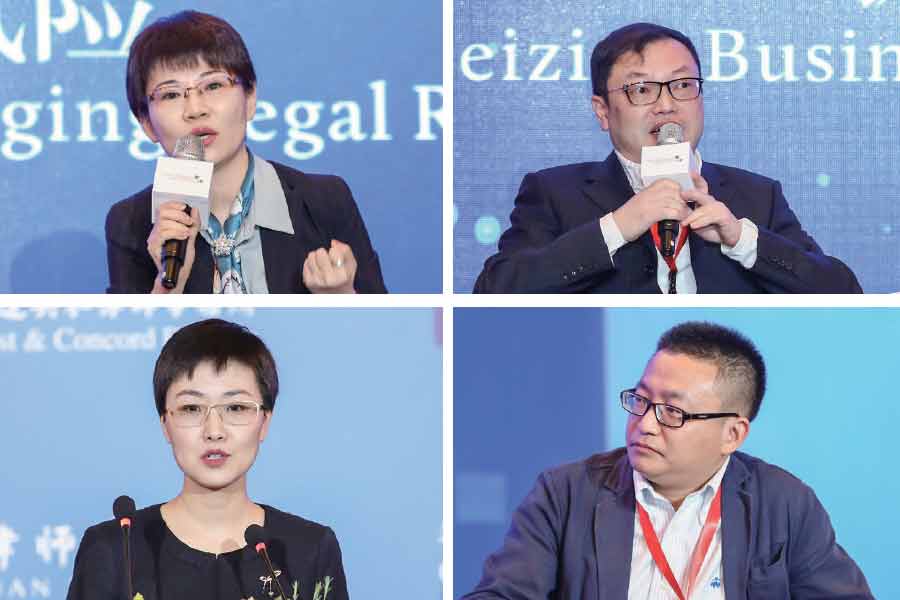
More information is being updated …
CHALLENGES IN CROSS-BORDER INVESTMENT AND FINANCING

CHINESE ENTERPRISES going global is a growing trend, and at CBLJ Forum 2019, Dentons China moderated a discussion on “Legal challenges for companies in cross-border investment and financing”.
Emilia Shi, a senior partner at Dentons, pointed out that Chinese companies should make an estimate about how long it would take to obtain approval from the central government when engaging in cross-border mergers. She also added that the US and Europe had strengthened their examinations of foreign investment.
Wu Siying, senior consultant at Dentons, was of the opinion that cross-border mergers by Chinese enterprises would continue to boom. He said the role of lawyers should be providing more detailed and up-to-date information to clients, and helping them to make more accurate judgments. And he said lawyers should also assist clients in navigating barriers and difficulties after they had made their decisions.
Zheng Kai, managing director, Corporate Finance and Capital Markets at CLSA, noted that the majority of enterprises that went global used to be state-owned enterprises (SOEs), but now private enterprises and SOEs shared this equally. He also said that Chinese enterprises tended to conduct overseas project financing through a financing group made up of Chinese-funded investment banks and local financial institutions to ensure the long-term stability of making investments locally.
Yao Weiqi, a senior partner at Dentons, said the Outline Development Plan for the Guangdong-Hong Kong-Macau Greater Bay Area covered many breakthrough measures relating to the cross-border operation of financial institutions, and the cross-sales and agency sales of financial products. She believed that cross-border transactions or investments of financial products would facilitate companies’ overseas investments.
Leslie Zhang, the deputy general manager and general counsel of the Legal Department of United Energy Group, said that risks in transactions were closely related to supervision at home and abroad, the exchange and outflow of renminbi, social movements, etc. He pointed out that the certainty and flexibility of transactions should always be considered when conducting overseas mergers, and that the key to making a deal was to find the mutual interests of relevant parties to the transaction.
Gao Wei, the managing director at Sinotrans Air Transportation Development, said that logistics companies like his take a global view and started to invest in this area with the idea of going global. He added that going global required an understanding of the international rules. “We hope to make our own innovations under existing rules, rather than creating a brand new system,” he said.
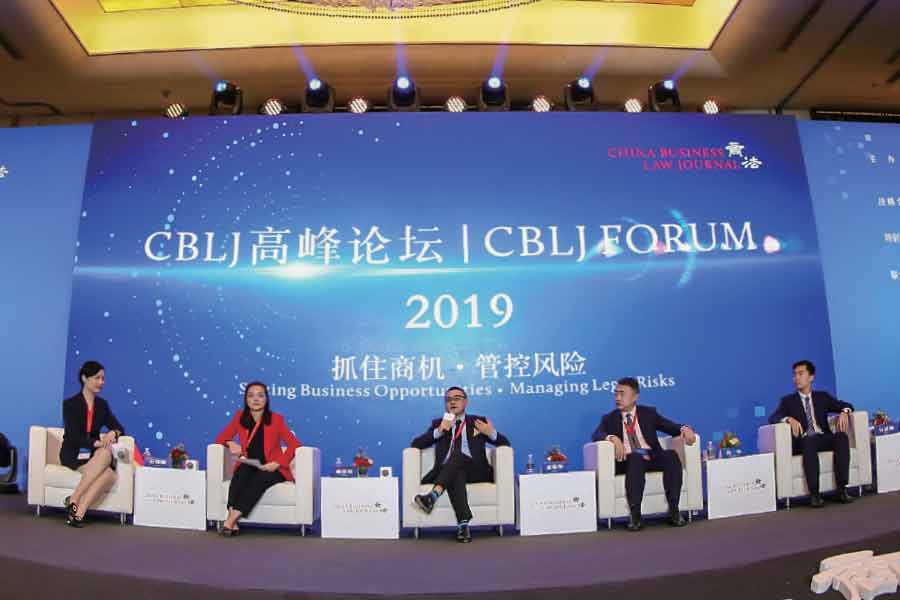
More information is being updated …
M&A/RESTRUCTURING TRENDS

Tian Yuan managing partner Liu Yan, partners Ren Yanling, Xiao Aihua and Song Juanjuan, participated, along with special corporate guests Dell Hao, the general manager of China Milestone Huanneng Investment Management, Peter Su, the general counsel at Tsinghua Tongfang, and Eric Xie, the general manager of the Legal Department at Golden Concord Holdings.
Liu noted in her keynote speech that, against the background of the age of “tempering strictness with mercy”, and notwithstanding the China Securities Regulatory Commission paying close attention to enterprises, including those that have pledged high valuation, high goodwill and high performance, the review speed and pass rate for transactions in 2019 is projected to be much higher than the previous year.
With respect to M&A in the domestic real estate sector, Ren Yanling said that real estate projects in such industries as education, medicine, senior care, culture and sports, in which many developers have begun to be involved, have increased the complexity of financing/investment in M&A projects.
Xiao summarized the trend of SOEs acquiring private enterprises, which includes an increase in outstanding targets among private enterprises, a rise in acquisition prices from 2019 on, and more activity in the domestic market.
With respect to trends in the medical and health sector, Song noted that the private establishment of hospitals was something the government was continuing to support, and this was showing signs of participation by groups, a move to the high end, and greater size of projects. This year is the 10th year of new medical reforms, and the establishment of private hospitals has passed the stage where everyone is rushing to get into the level of consolidation.

More information is being updated …
INTERPRETATION OF CHINA’S PRIVATE EQUITY MARKET

IN 2018, A GREAT NUMBER of new regulations of the private equity market were released one after another. “[In terms of the regulation of China’s securities investments] what remains unchanged is the constant change,” said Wang Yang, a partner at Guantao Law Firm.
On the topic of “Market trend analysis of PE funds and equity investment”, Wang and Chen Xiaochuang, partners at Guantao Law Firm, Bao Jingming, the general manager of General Technology Venture Capital, Sun Yonggang, a partner at Zriver Capital, Zhang Huaquan, the legal director at CSTF Fund Management and Zhu Ke, director and deputy general manager of Guiyang Venture Capital, all participated in the discussion.
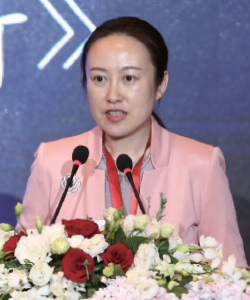
According to Wang, the buzzword of the equity investment market is “returning to rationality”; and the “80/20 rule”, which illustrates 20% funds occupy 80% capital, will become ever more prominent. Bao Jingming agrees with Wang’s point of view. He believes that for any market or group, once competition kicks in, or the market develops to a certain stage, the 80/20 rule will naturally take hold, and this poses a challenge to fund management. “The key issue lies in how to find your core competence and how to position your own funds. It hinges on the capability of every management institution,” he said.
Zhang pointed out that the development model and performance of China’s private equity market and real estate market have something in common. The difference is that what cost the real estate market nearly two decades to develop into scale took the country’s private equity funds less than half of the time. “For private equity funds, fundraising is the key, but investment rules,” he said.
Drawing on his own experience as an arbitrator, Sun said that since the end of last year, disputes in the field of equity investment have increased dramatically. Arbitration is a suitable choice for resolving such disputes as it respects the autonomy of the parties.
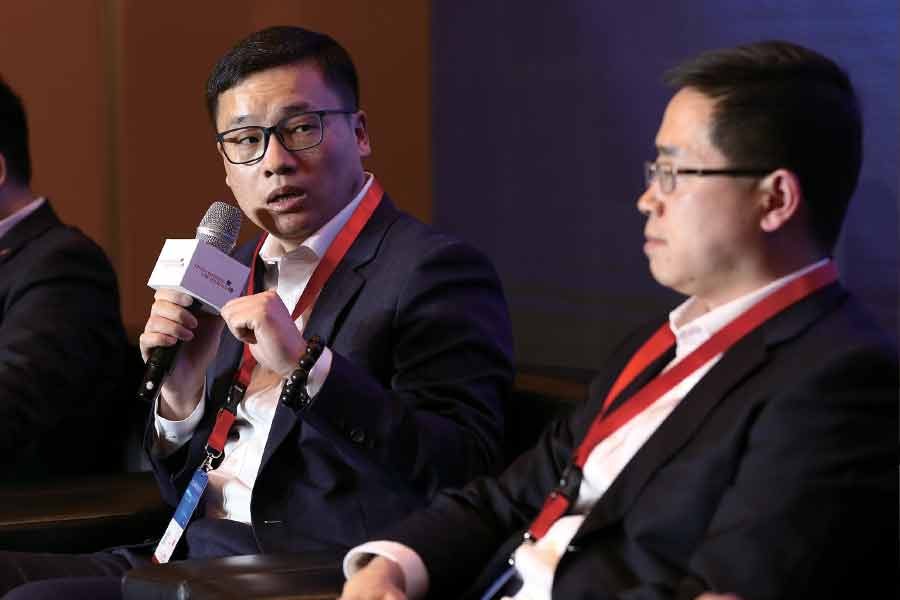
More information is being updated …
LISTING STRATEGIES FOR NEW ECONOMY INDUSTRIES

WITH THE ENTHUSIASM FOR Hong Kong listings that began last year and that continues, and the establishment of the Science and Technology Innovation Board, Commerce & Finance Law Offices discussed the topic “IPO strategies and risk management for companies in the new economy industries” with the legal counsel of listed and unlisted enterprises, and with Commerce & Finance partner Andrew Zhang serving as chair for the topic.
Special corporate guests who attended this session included: Sun Bin, the chief legal officer of Xiaomi; Liu Jian, the senior legal director, and investment and financing legal affairs general manager of Meituan Dianping; Chen Yang, legal director at China Renaissance Group; Chen Yingying, the legal director and securities affairs representative of Meten International Education Group; and Liang Min, the general counsel of Keep.
In the keynote speech, Zhang Xiaoman, partner of Commerce & Finance, analyzed and compared the New Third Board, domestic shares, Hong Kong shares, US shares and CDRs (Chinese depository receipts), all listing channels open to new economy enterprises, and gave an explanation of the Science and Technology Innovation Board. He also advised: “If one believes that every internet enterprise can list on the Science and Technology Innovation Board, this is a grave misunderstanding, as this board requires that there be hard science or technology in the enterprise.”
In the subsequent special guest discussion session, several of the corporate guests shared their personal views. Sun said that one of the challenges in Xiaomi’s Hong Kong listing was that, as Xiaomi’s business included numerous sectors such as the internet, e-commerce, hardware, etc., the business logic, legal logic and legal compliance issues involved were intricate and complex. “Based on a comment by an intermediary firm that assisted us in our listing, this was like doing seven listings,” she said.
Liu said that Meituan, like Xiaomi, was involved in numerous businesses, and during its listing, it was also making major moves such as an acquisition and launch of a new business. “In the course of the listing, we had to consider these moves for our listing prospectus, posing a major challenge for us,” he said.
Through statistical data, Chen Yingying pointed out that, as there were still obstacles to A-share listings, overseas listings remained the preferred choice for educational enterprises.
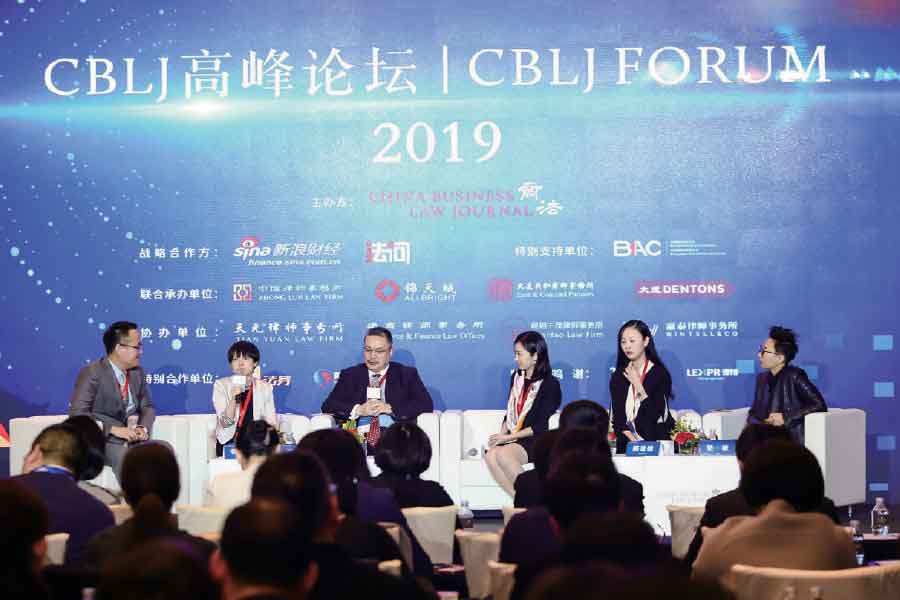
More information is being updated …
DEFINING THE ‘BALANCE COMPENSATION’

WITH THE CONTINUAL innovation of finance, the traditional methods of guarantee have been gradually replaced by “balance compensation”. Paul Zhou, the managing partner of Wintell & Co, and Harry Wu, a partner at the firm, chose the controversial topic of “balance compensation” in financial disputes to discuss with guests.
Attendees included Zhang Haoliang, director of the Beijing Arbitration Commission (BAC) Business Development/International Case Division, Lin Haiquan, a BAC arbitrator, Lü Qi, the deputy general manager of the Legal Department of China Minsheng Bank, and Wang Qiang, general counsel at Zhongrong International Trust.
Through case studies, Wu explained and analyzed “balance compensation” with existing legal concepts and rules. From the perspective of arbitration, Zhang Haoliang said that the dispute resolution body would give priority to the true intention of the parties and the commercial substance of the contract. However, Zhang Haoliang added that the BAC would not render a ruling of balance compensation where unnecessary, so as to reduce the impact on external authorities and other contracts.
Lin Haiquan, who worked in the Supreme People’s Court, said this court is different from courts at other levels. In addition to hearing cases, the Supreme Court also formulates rules. Hence, qualitative determination is of vital importance. Even so, he admitted that it was hard to determine to which scenario “balance compensation” applied. As an arbitrator, he said: “For the handling of new types of disputes, arbitration may be more suitable to balance the interests of the parties than the courts.”
Wang Qiang, who had recent discussions on the issue with the Supreme People’s Court and regulatory authorities, said that “balance compensation” was more officially recognized as an unconventional method of guarantee. From the perspective of corporate legal affairs, he said there was a significant difference between the obligation to make up for the price difference and the traditional obligation to guarantee. As for how to avoid risks, he said one solution was to express explicitly in the contract that it was not an assurance.
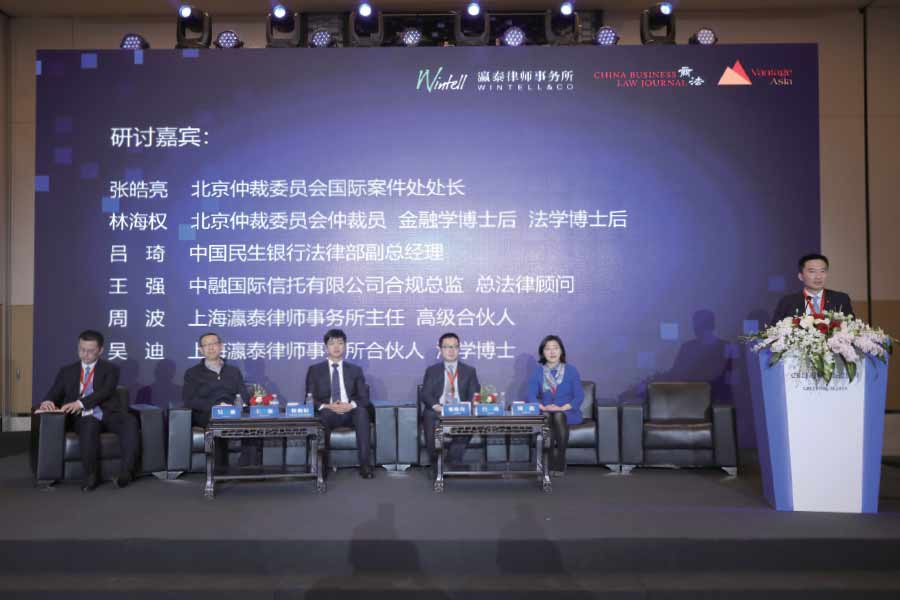
More information is being updated …
BELT AND ROAD, ENERGY AND GOING GLOBAL

AGAINST THE BACKGROUND of the Belt and Road Initiative (BRI), how are energy projects to go global? Equity partner Wang Jihong and partner Hao Li with Zhong Lun Law Firm, held discussions revolving around this topic with executives of logistics, investment banks and energy companies.
Wang said that during the process of BRI projects, she felt the irreplaceable nature of Chinese lawyers. Taking Chinese state-owned enterprises (SOEs) as an example, she said that the global assets and projects of SOEs were under the supervision of the government, so every overseas investment project would encounter occasional visits from inspection teams of the Central Commission for Discipline Inspection, which would require expertise from Chinese lawyers to deal with. “From my personal experience, the whole project is inseparable from lawyers, we almost communicate with the leaders of overseas projects in minutes, 24 hours a day on standby,” she said.
Leslie Zhang, deputy general manager and general counsel of the Legal Department of United Energy Group, said that the risk rating of certain countries along the Belt and Road was not very high, which presented certain obstacles to project financing. However, when certain large Western enterprises encountered compliance and other such issues, making it impossible for them to enter a certain country’s market, this presented an opportunity for Chinese enterprises. “Chinese buyers have become an important global force,” he said.
Zheng Kai, managing director, Corporate Finance and Capital Markets of CLSA, noted that Southeast Asian nations along the Belt and Road, such as Vietnam and the Philippines, had a major population advantage, which made them large potential markets for new energy enterprises. In terms of financing, he recommended that enterprises striving to globalize should consider establishing overseas financing platforms, which would provide them with strong support for their development.
Speaking about the rise of Chinese firms during the past two years, he said: “In the course of Chinese enterprises going global, we have found that Chinese law firms have also gradually accumulated service capabilities, and Chinese investment banks have also participated in the offshore service investment field, so I feel that this a gradual [development] process.”
Gao Wei, managing director of Sinotrans Air Transport Development, has observed that essentially all Hong Kong listing projects are now handled by Chinese investment banks and law firms, and certain private enterprises have moved their headquarters to Hong Kong, realizing an international posture.
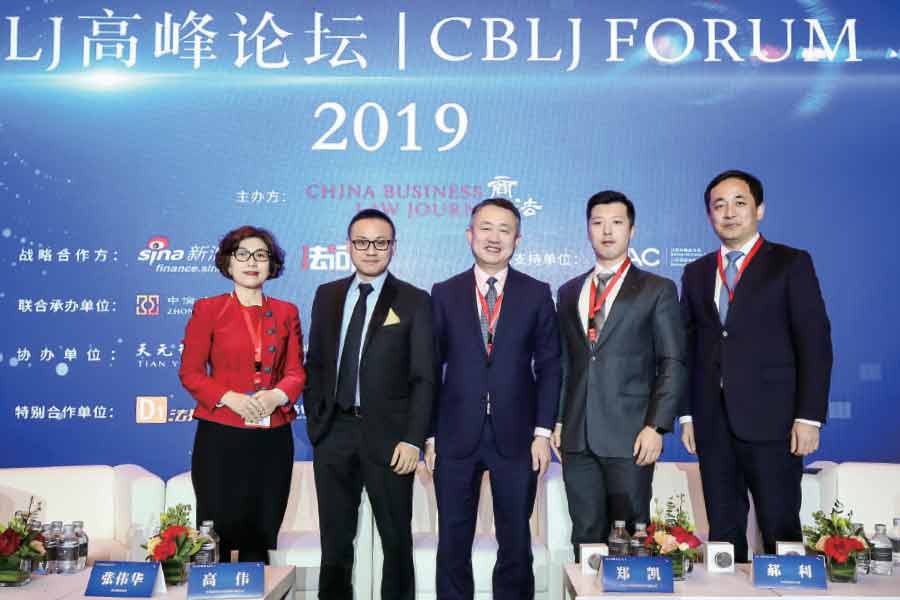
More information is being updated …
FOCUS ON NEW RULES OF BANKRUPTCY

THE SUPREME PEOPLE’S COURT issued the Regulations on Several Issues Concerning the Application of the Enterprise Bankruptcy Law of the People’s Republic of China (3) (Judicial Interpretation 3) on 28 March, focusing on the relevant legal issues concerning the exercise of creditor rights, which triggered a heated discussion in the industry.
Dentons China selected the topic of “Corporate bankruptcy: how to deal with non-performing assets and disputes” and invited experts and scholars to analyze the judicial interpretation. Dentons senior partners Gao Meili, Zheng Zhibin, Lu Shaohong, Emilia Shi and Huang Jianzhou, and Professor of Peking University Law School Xu Defeng, participated in the discussion.
Zheng raised two questions on the issue of borrowing by the debtor: (1) the borrowing will be preferentially compensated with reference to the common debt, but it is obviously not classified as a common debt; and (2) the borrowing needs to be subject to the creditors’ meeting, which in turn has increased the difficulty of borrowing.
“In our current bankruptcy process, the creditors’ meeting is basically ineffective,” he said. As such, he suggested working with creditor committees of financial institutions, which hold 70% to 80% of the total credits.
Although the judicial interpretation reflects the desire of the Supreme Court to optimize the business climate, Lu doubted whether the creditors’ meeting could reach an effective resolution. “At present, is it possible that the requirements imposed on asset management by the judicial interpretation will obey the overall principle of giving equal emphasis to efficiency and fairness as provided in the Bankruptcy Law … It is worth thinking about.”
From the perspective of an administrator, Huang believes that the judicial interpretation increases the risk burdened on the administrator. “The right to know of a single creditor should be protected, but the question is to what extent the right should be protected,” he said.
Gao said that courts in different parts of the country dealt with common debts differently. The judicial interpretation has made it clear that if the parties have enacted an arbitration clause or entered into an arbitration agreement before bankruptcy, they can file for arbitration according to the original agreement.
This has led many creditors to change the dispute resolution clause to arbitration clause in order to avoid discrepancy in the determination of claims after entering insolvency proceedings.
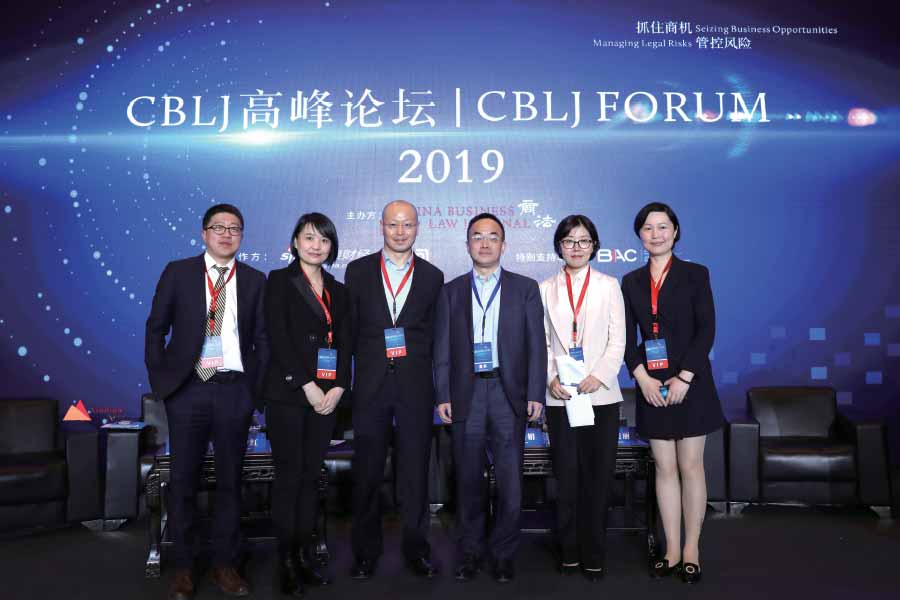
More information is being updated …
DATA COMPLIANCE AND EXPORT CONTROL LAW

ANOTHER SESSION BY Zhong Lun Law Firm on “Corporate compliance management” contained the topics of “executive responsibility” and “securities compliance” for discussion. Zhong Lun equity partner Chen Jihong and counsel Zhang Guoxun, respectively, spoke on key compliance points for enterprises with respect to data and export control.
Cheng said that data has become a core asset of enterprises, and that an enterprise’s data application capabilities determined its competitiveness. The year 2018 was dubbed China’s “first data compliance year”, but in terms of legislation, complementary rules for the system for management of the security of data sent abroad have yet to materialize, and in terms of enforcement, the various authorities reflect a situation of “nine dragons managing the waters”, or, perhaps, too many enforcement bodies.
Furthermore, Chen noted that when Chinese enterprises go global, they have to keep in mind the effect of foreign legislation, including the GDPR (the EU’s General Data Protection Regulation), the US CLOUD Act (Clarifying Lawful Overseas Use of Data Act) and Foreign Investment Risk Review Modernization Act, as well as legislation of the countries along the Belt and Road. “The objective of data compliance is to remove risk, and if we can turn data compliance into data management, this will raise it up one level,” he said.
Against the background of the trade war with the US, Zhang Guoxun listed anti-dumping and other such trade risks, and said that the maximum enforcement of import controls and economic sanctions and massive fines could be a matter of life or death for an enterprise. “Many enterprises are aware of the risks, but treat this as a chance, an opportunity,” he said.
Zhang said that US export controls and economic sanctions had extraterritorial effect, and that more than 20 countries and regions along the Belt and Road were currently affected by the US sanctions regime. Accordingly, enterprises needed to pay attention to business precaution. “Executives must recognize that export controls are compliance requirements above business interests, and are a company’s strategy,” he said.
The media coverage on the roundtable conference is organized based on shorthand transcripts. Any remarks by the guest speakers and scholars represent their own opinions, and not the opinions of the organizations to which they belong.
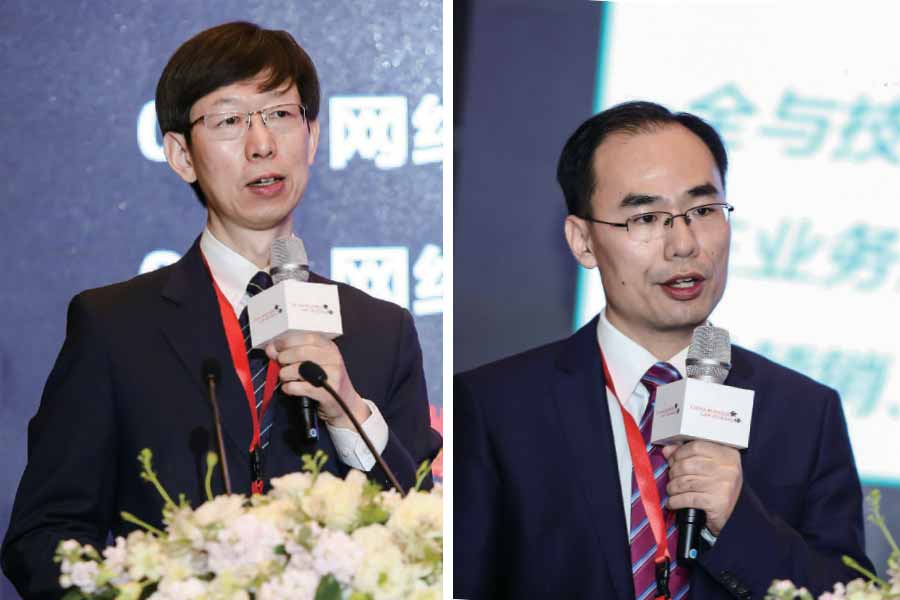
More information is being updated …
More information is being updated …










